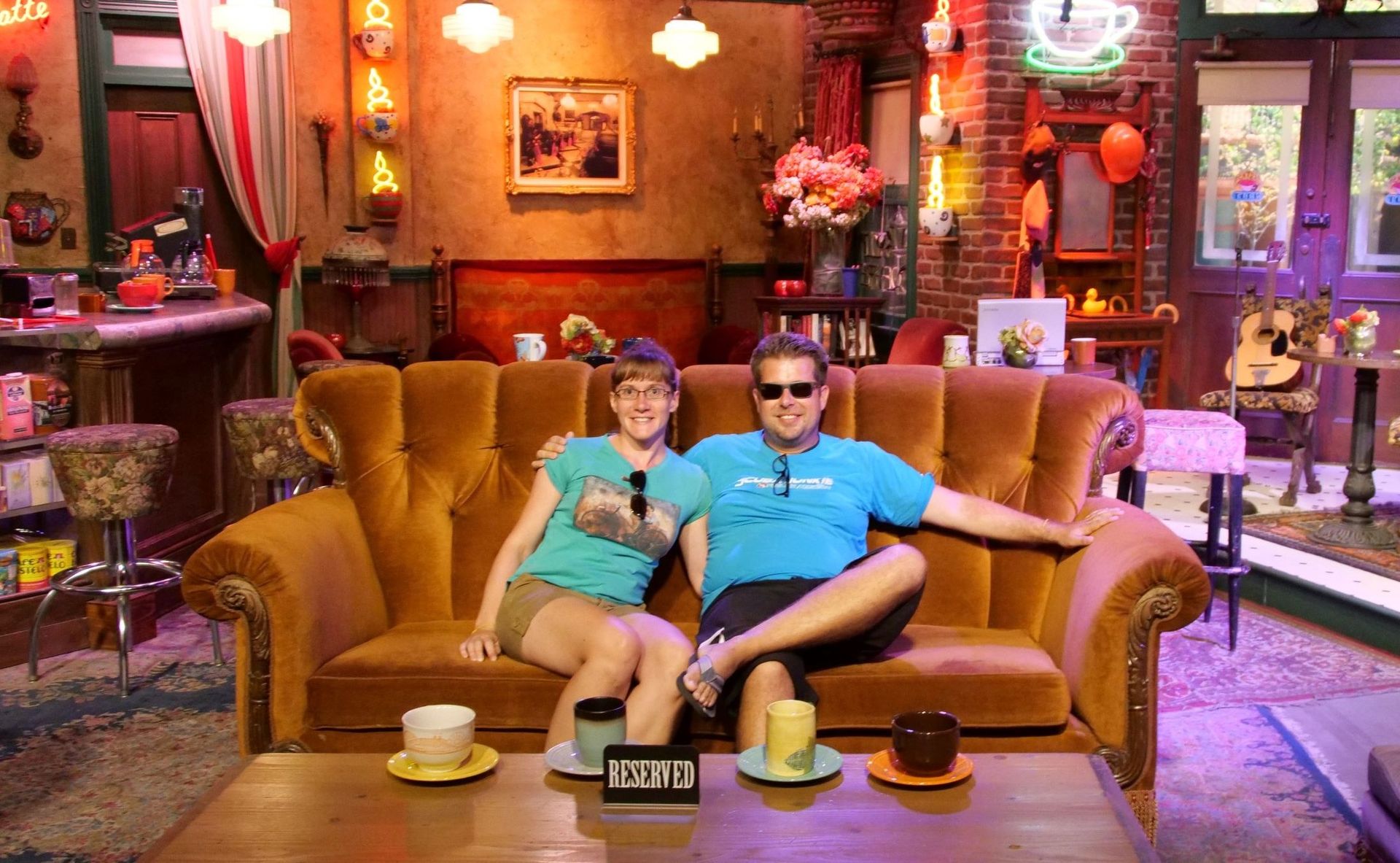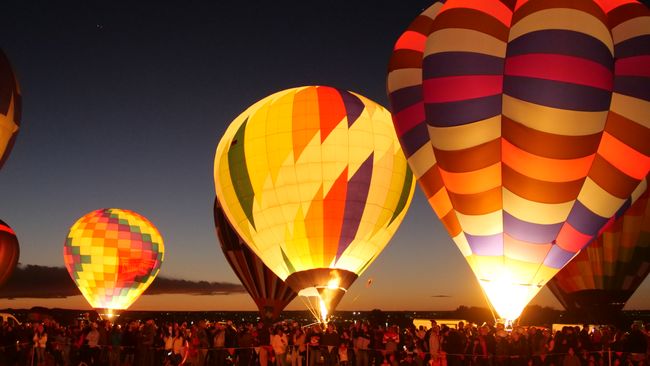04/10/2023 - ኢጉዋዙ ዋሰርፋለ & ፎዝ ዶ ኢጉዋኩ / ብራዚሊየን።
ተሓቲሙ: 16.04.2023
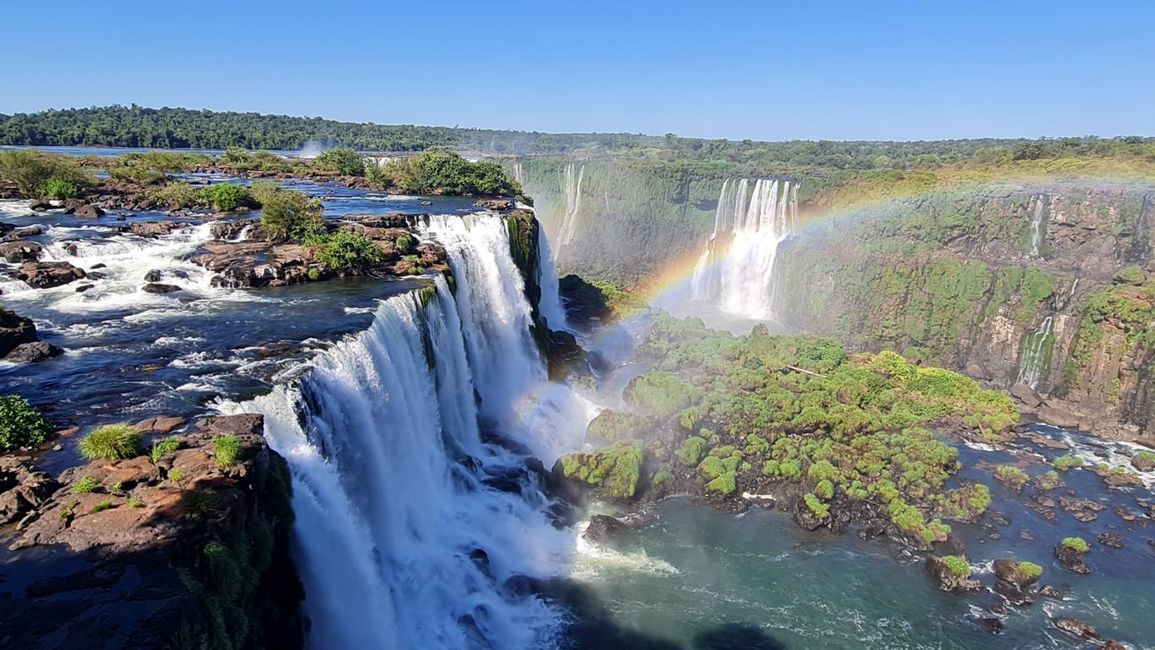
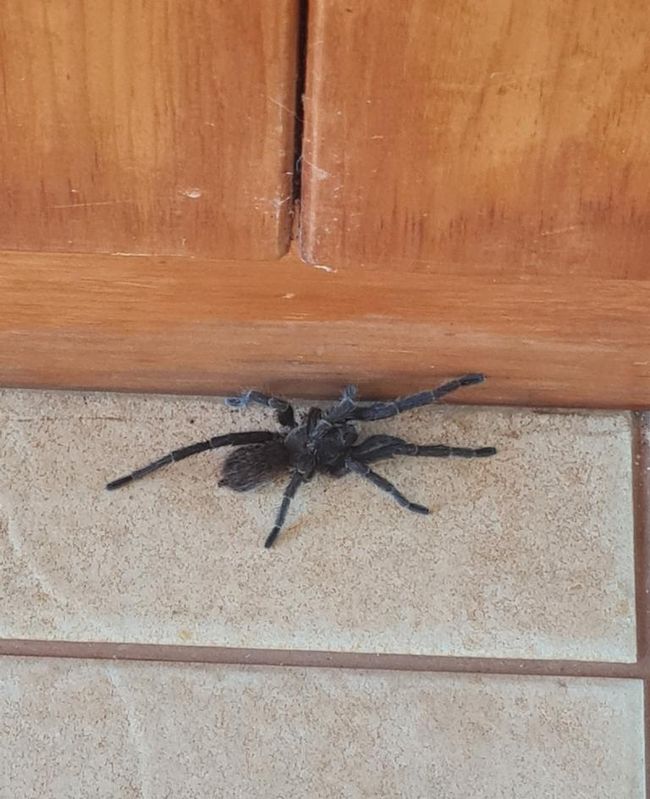
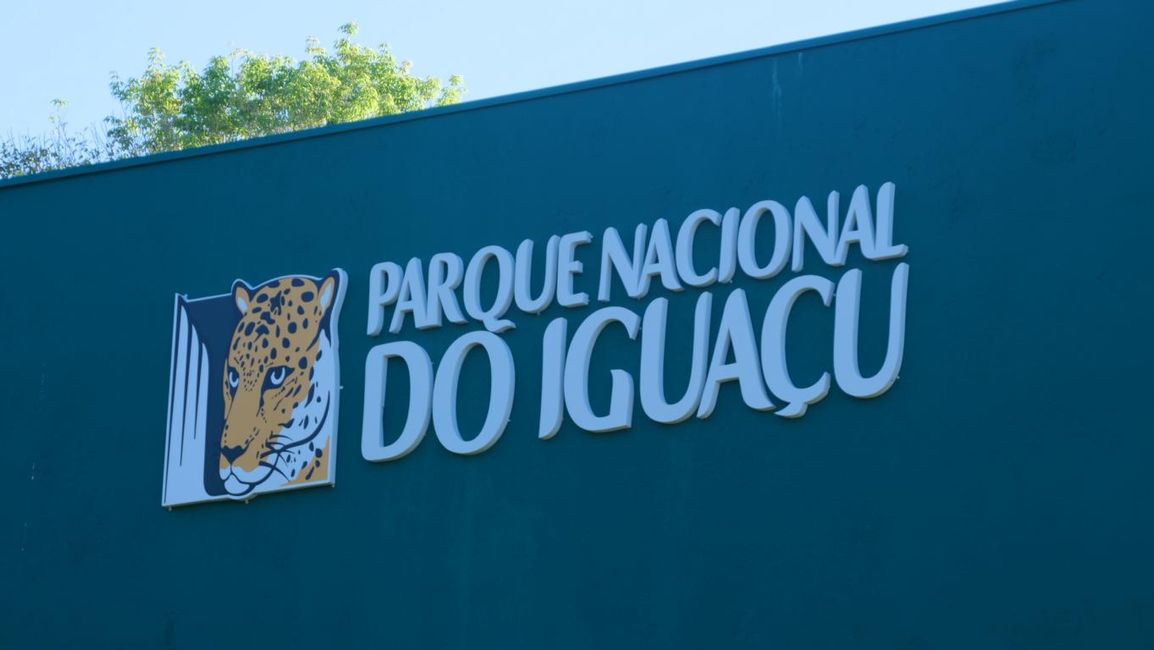

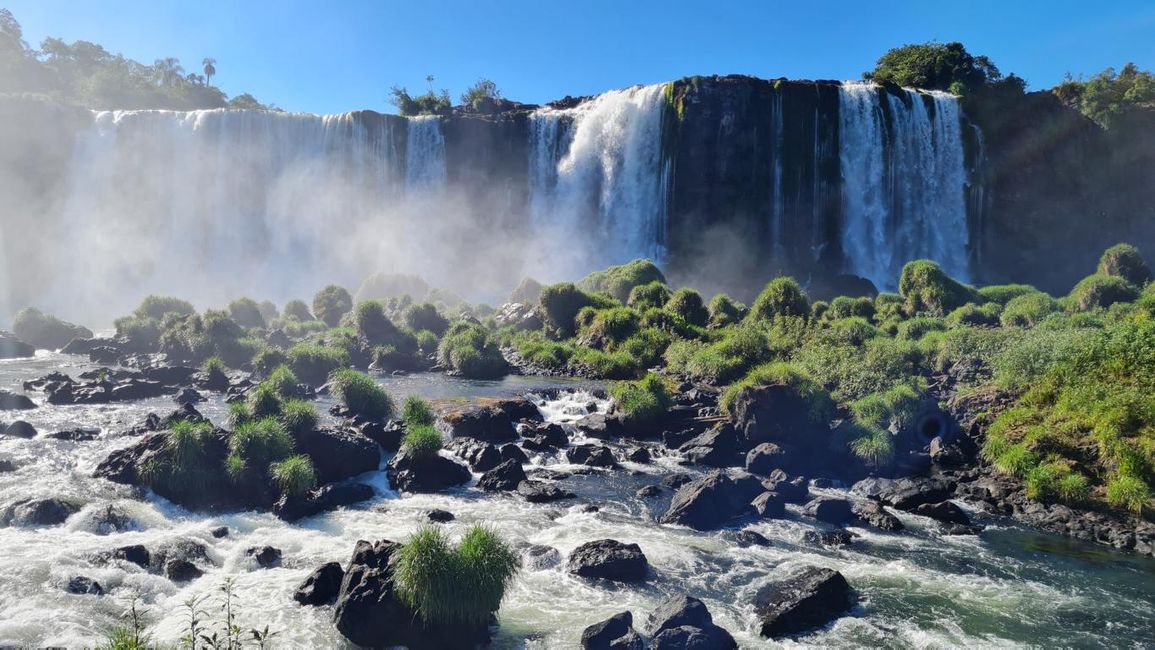
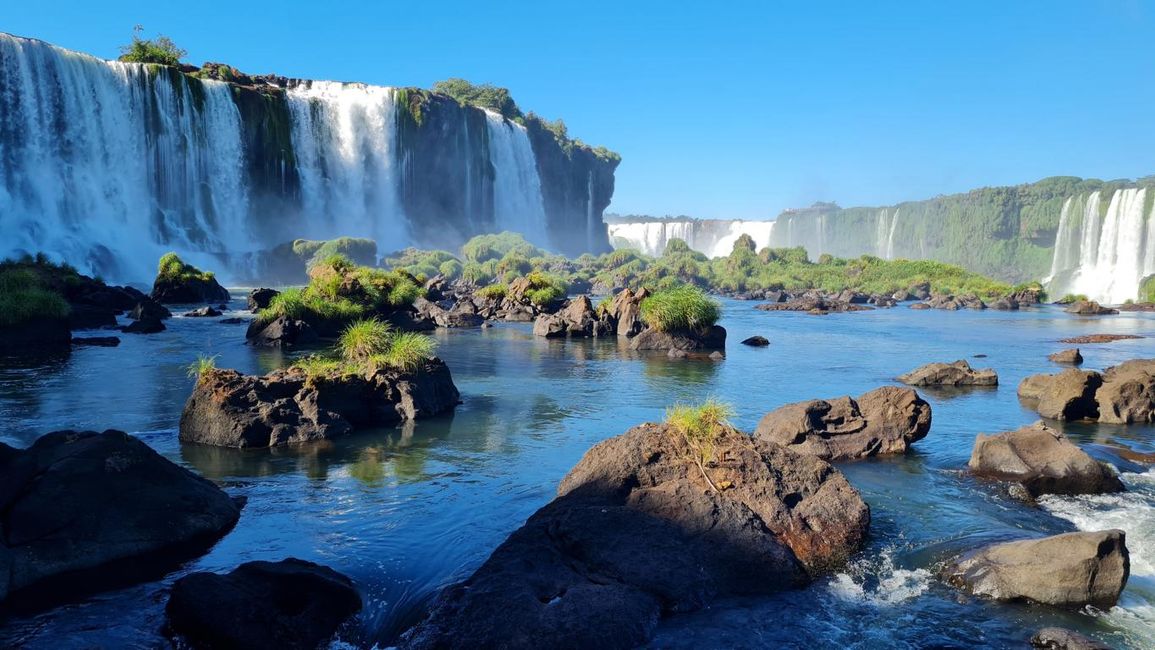
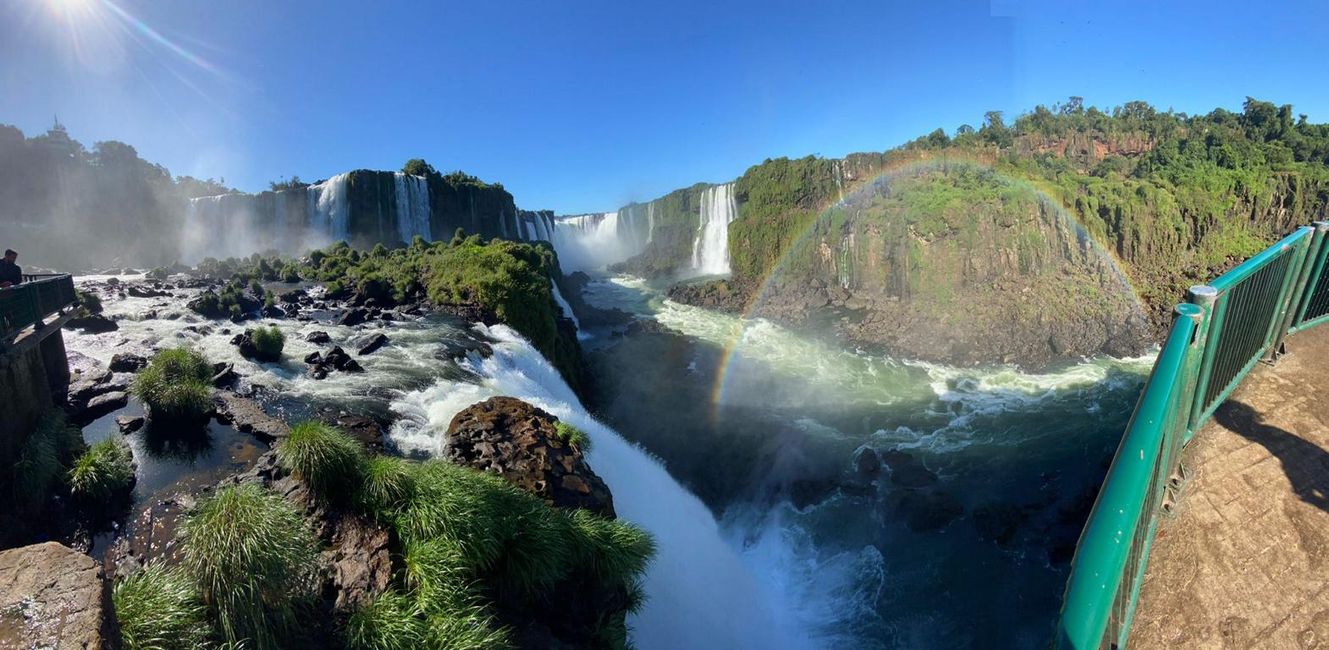
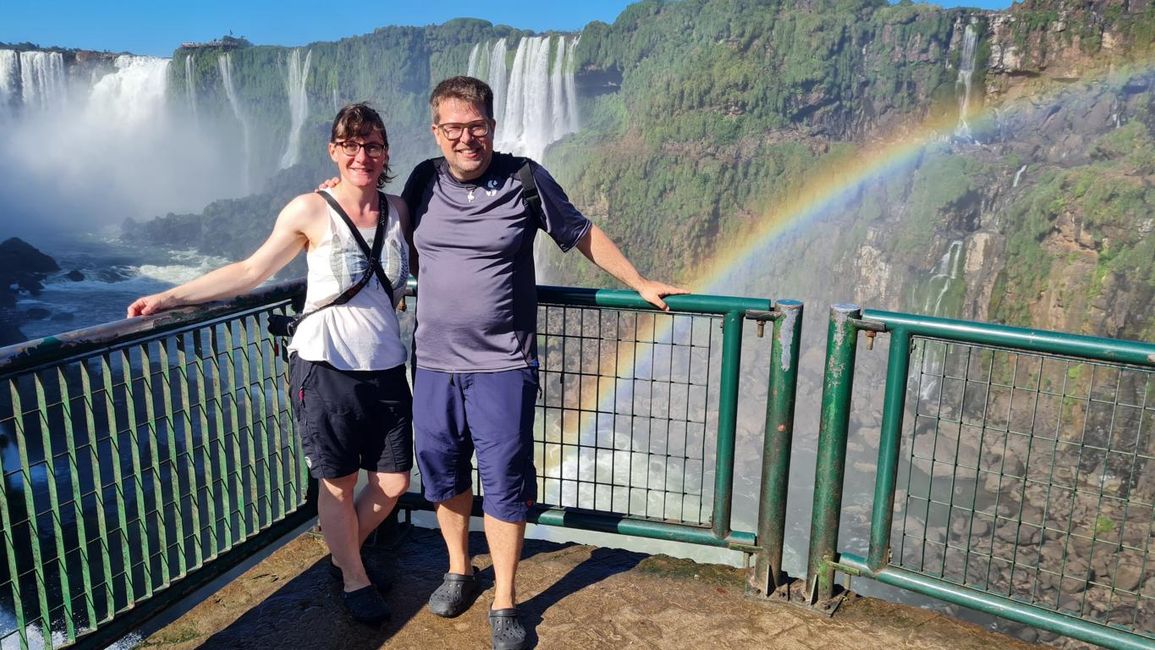
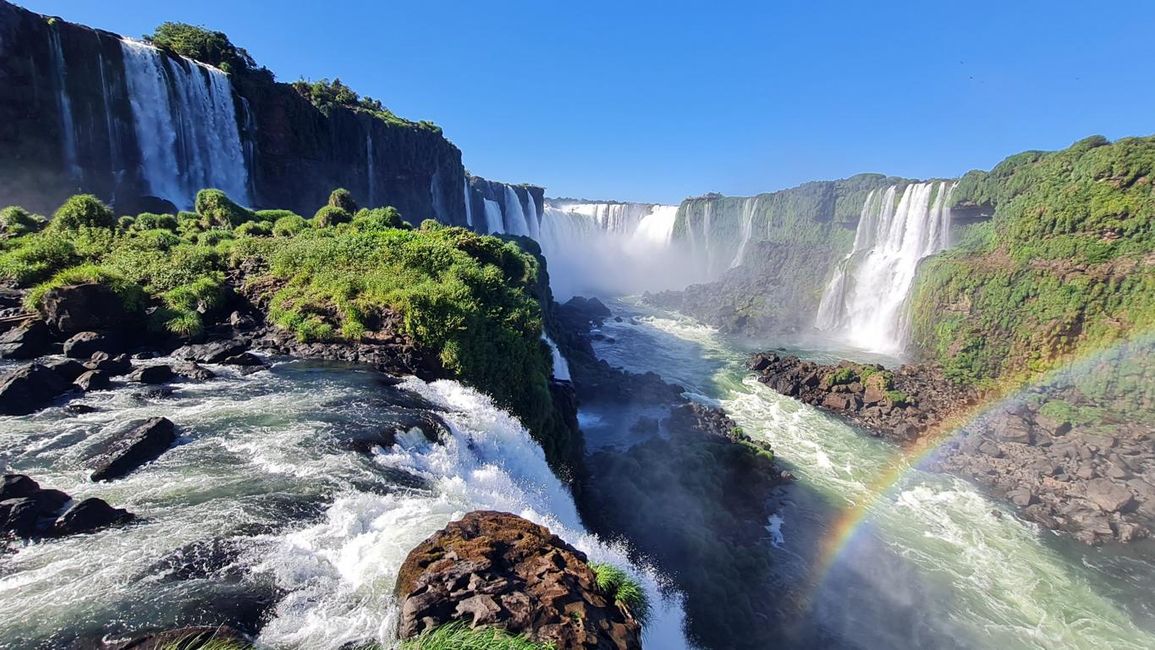
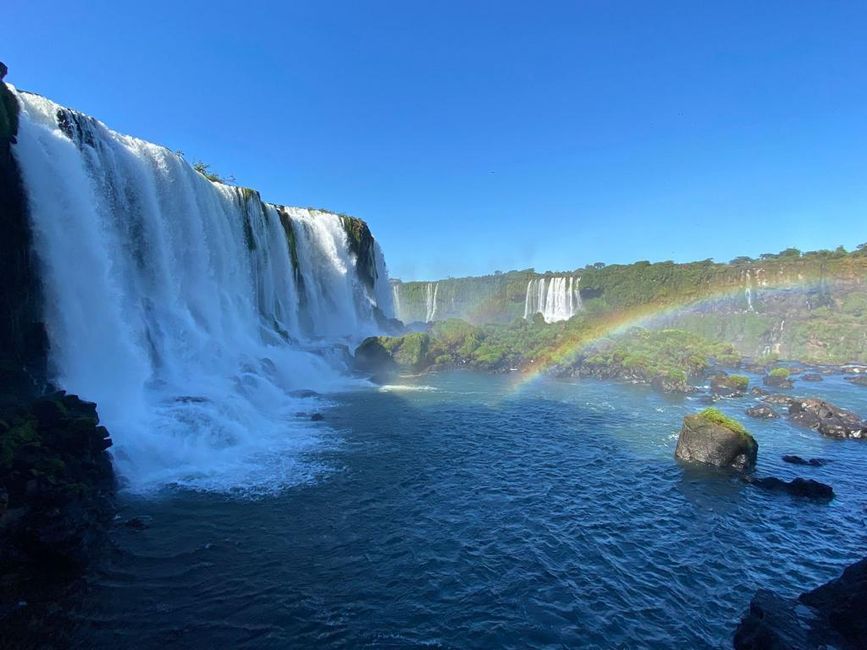
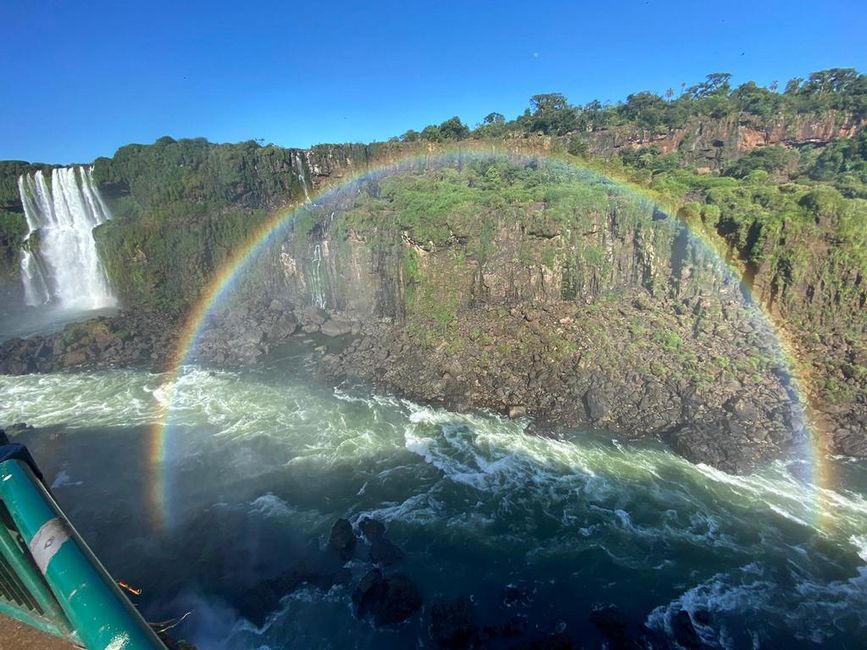

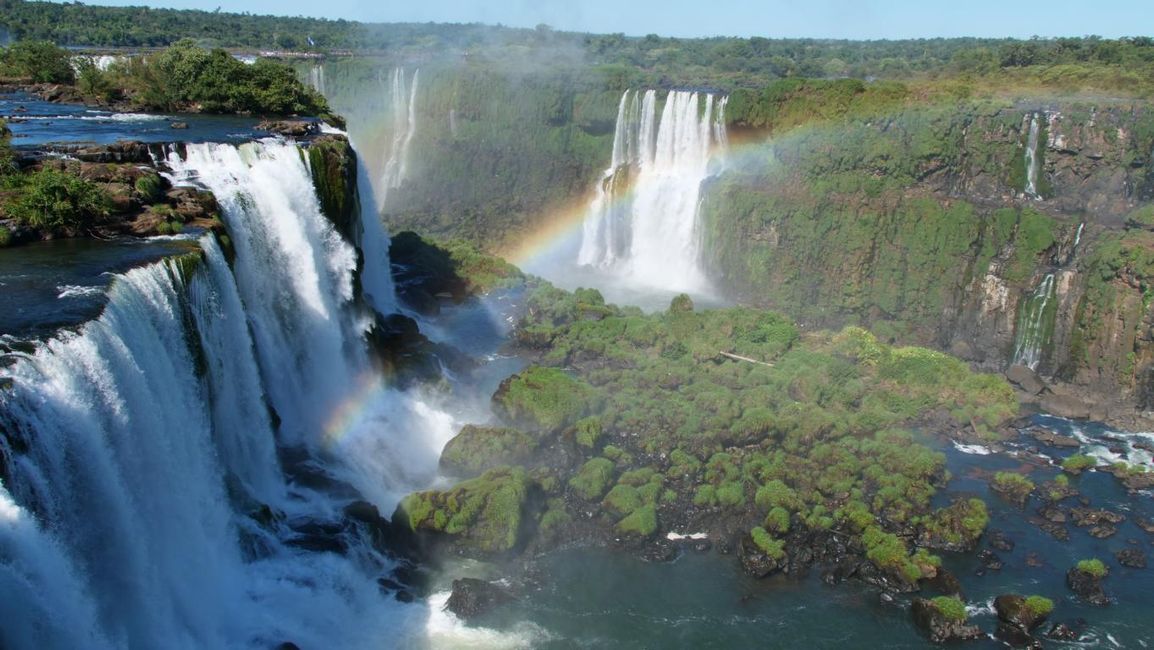

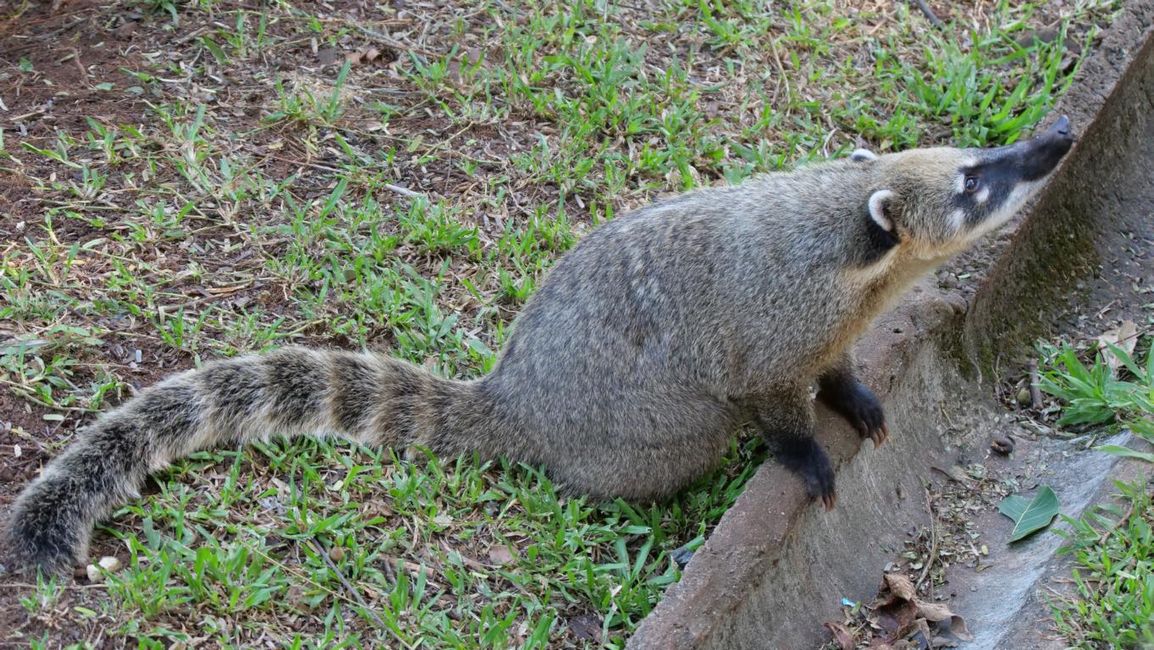
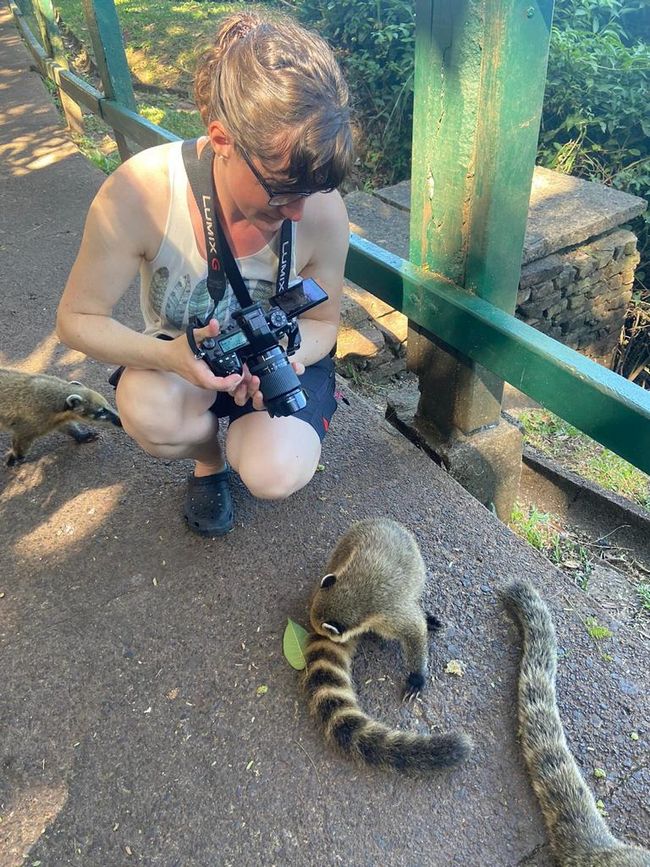
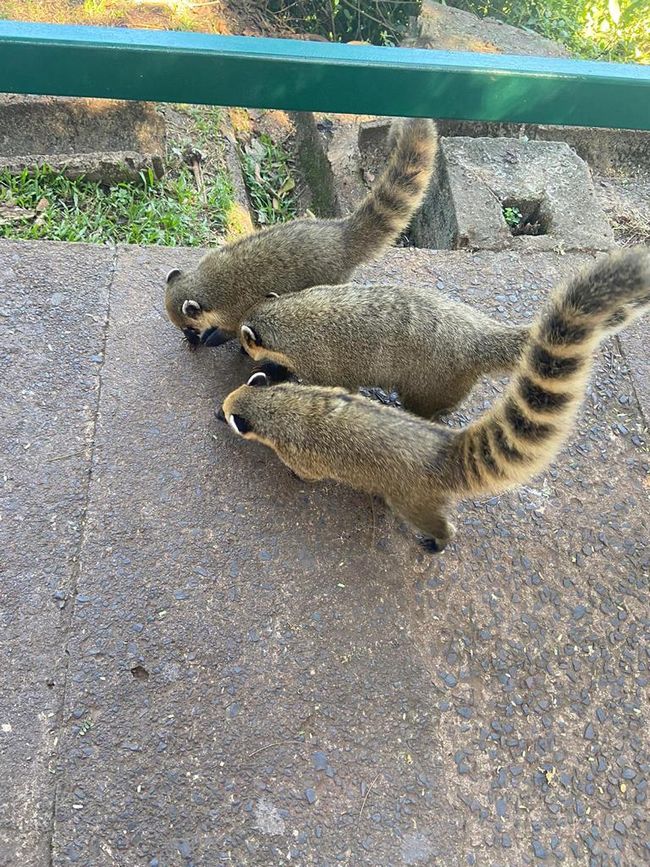
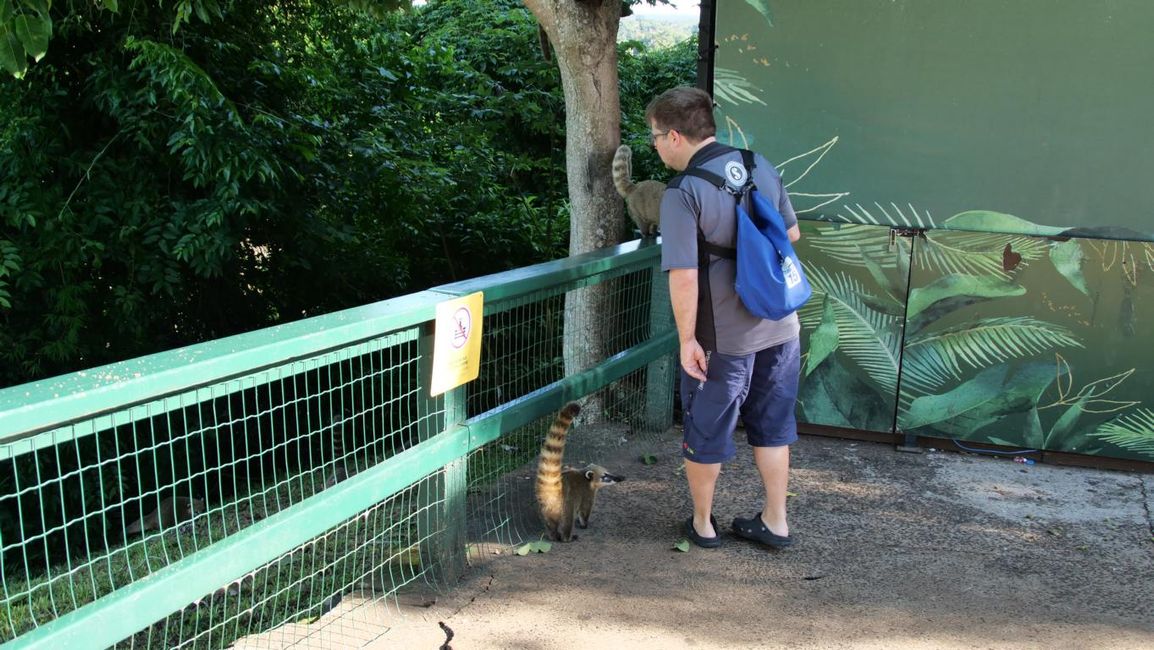
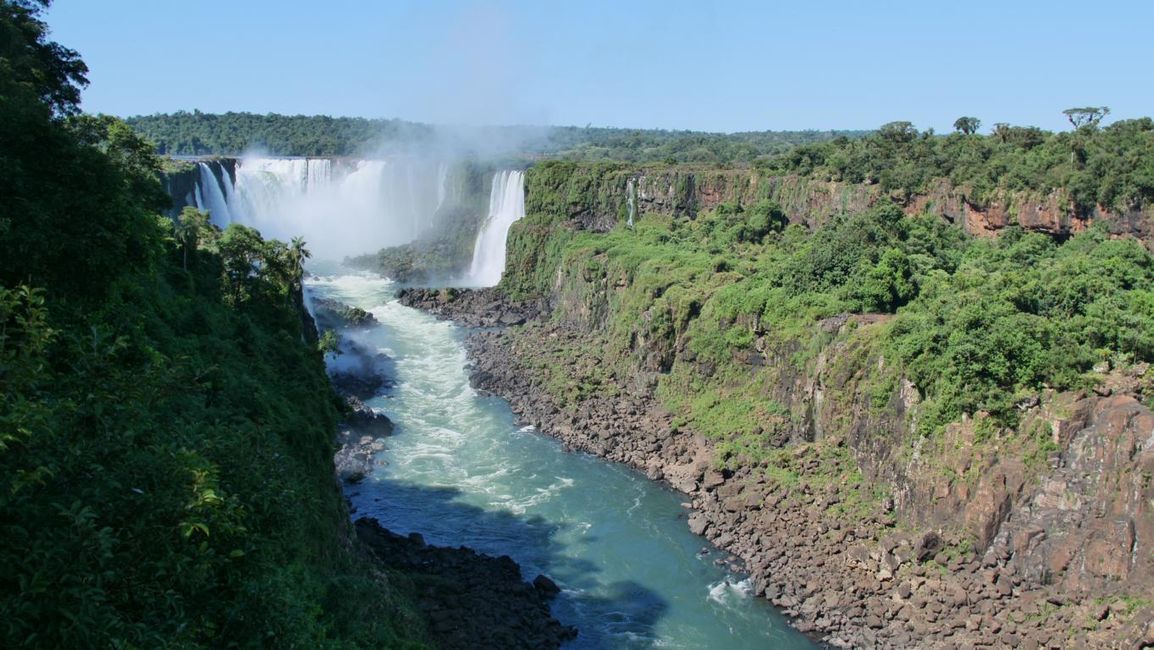
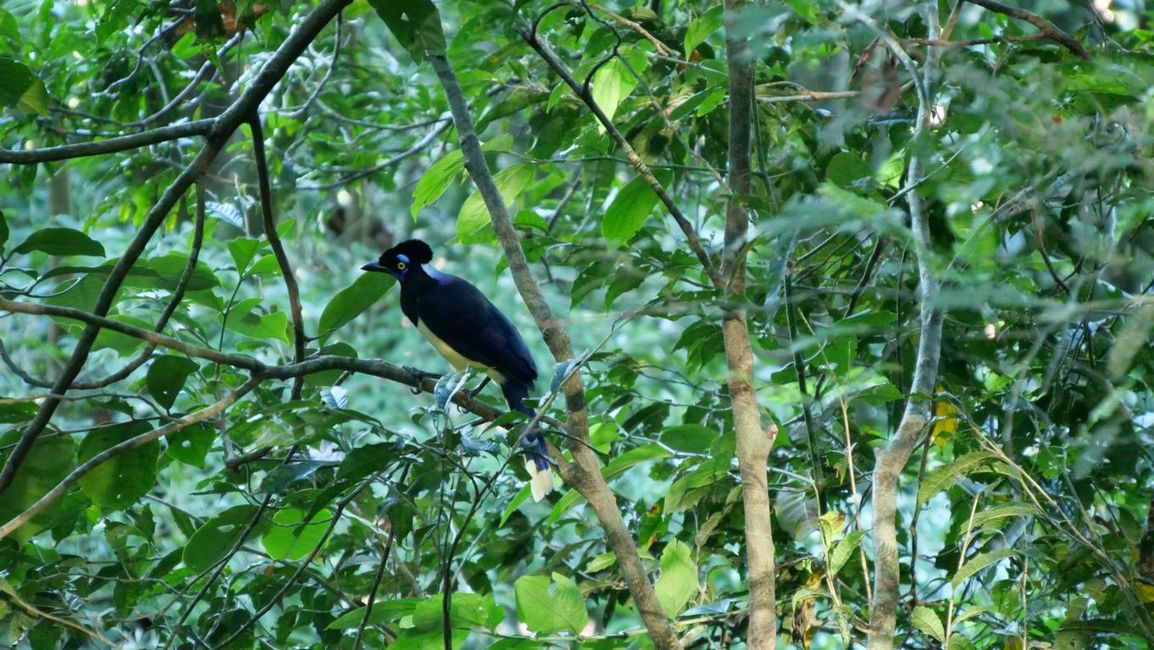
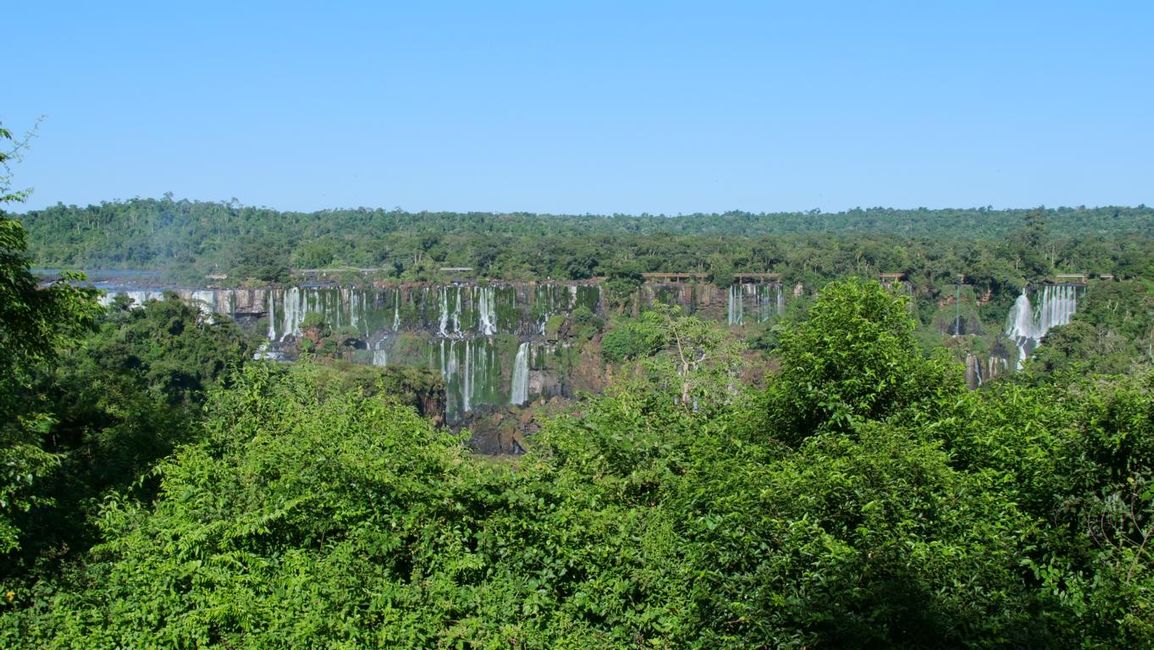
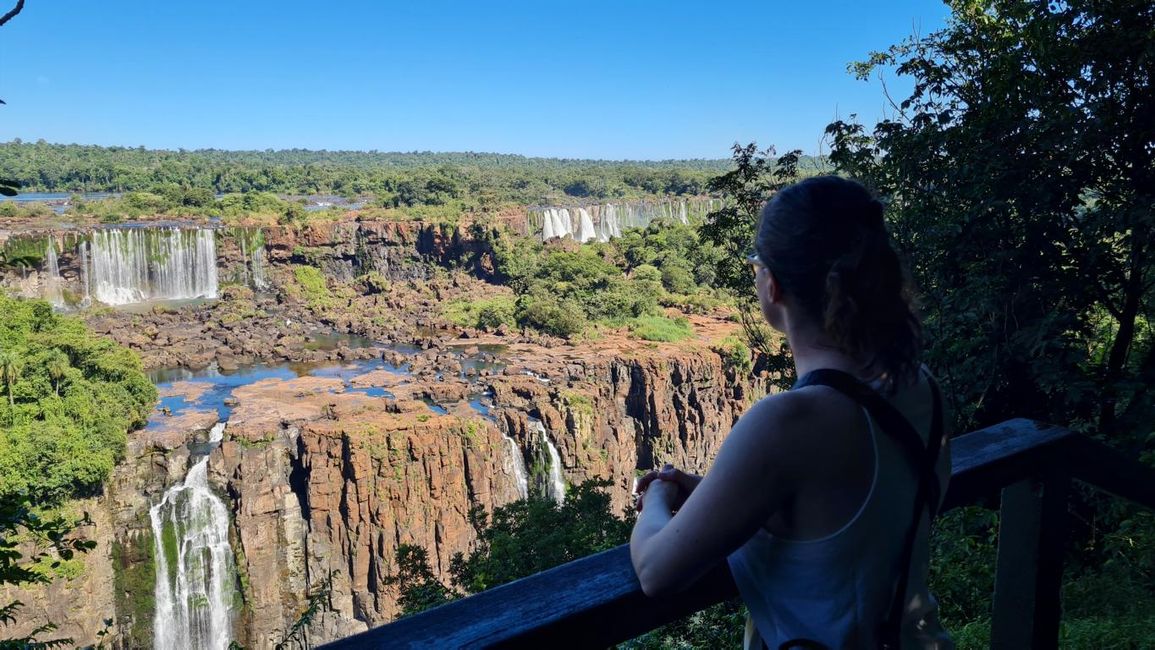
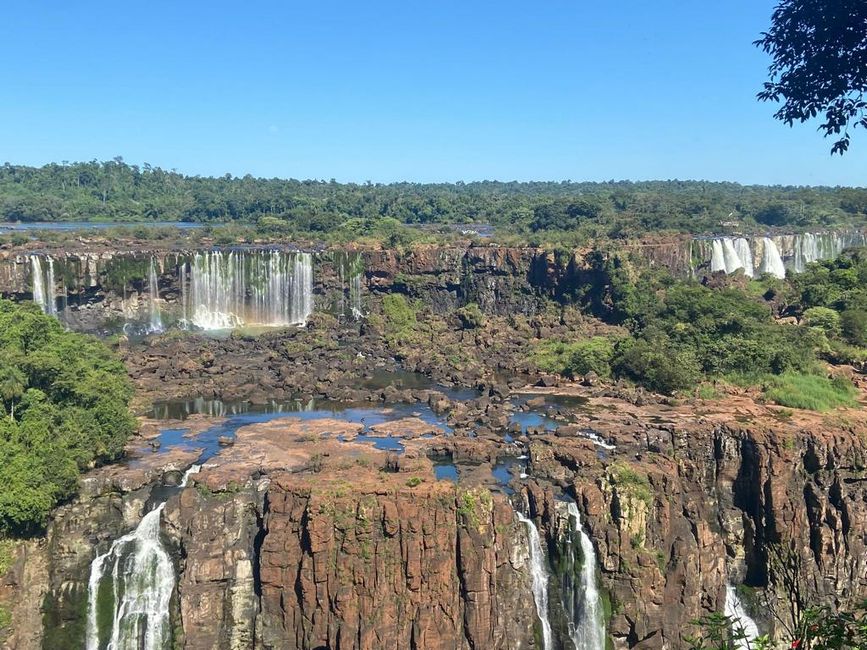
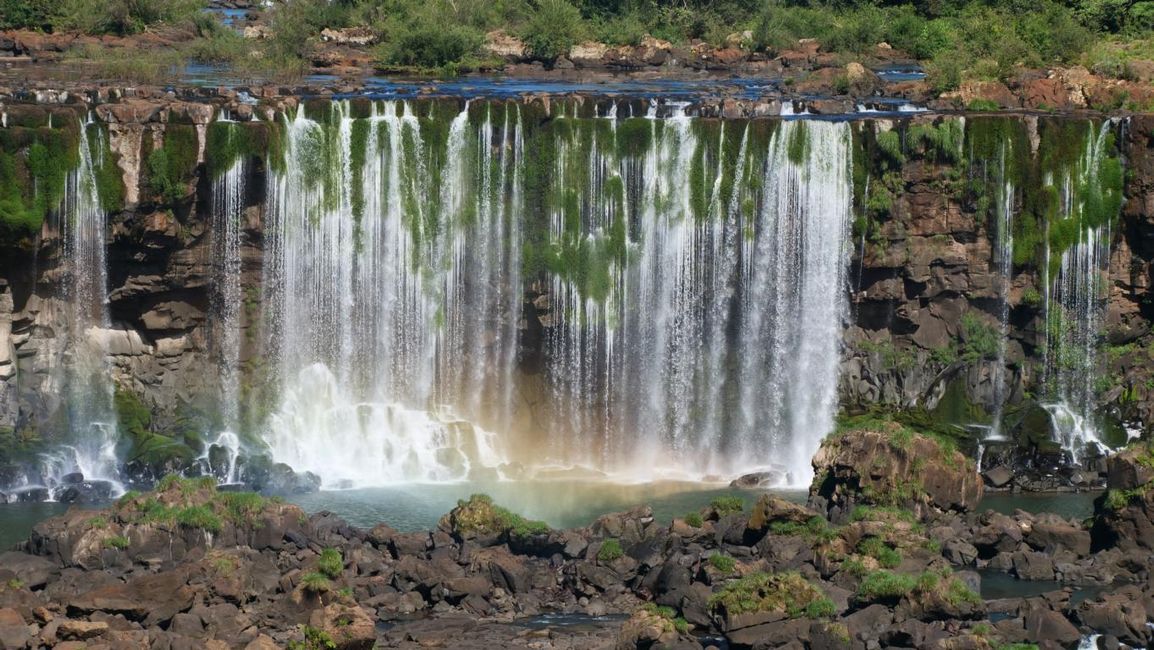
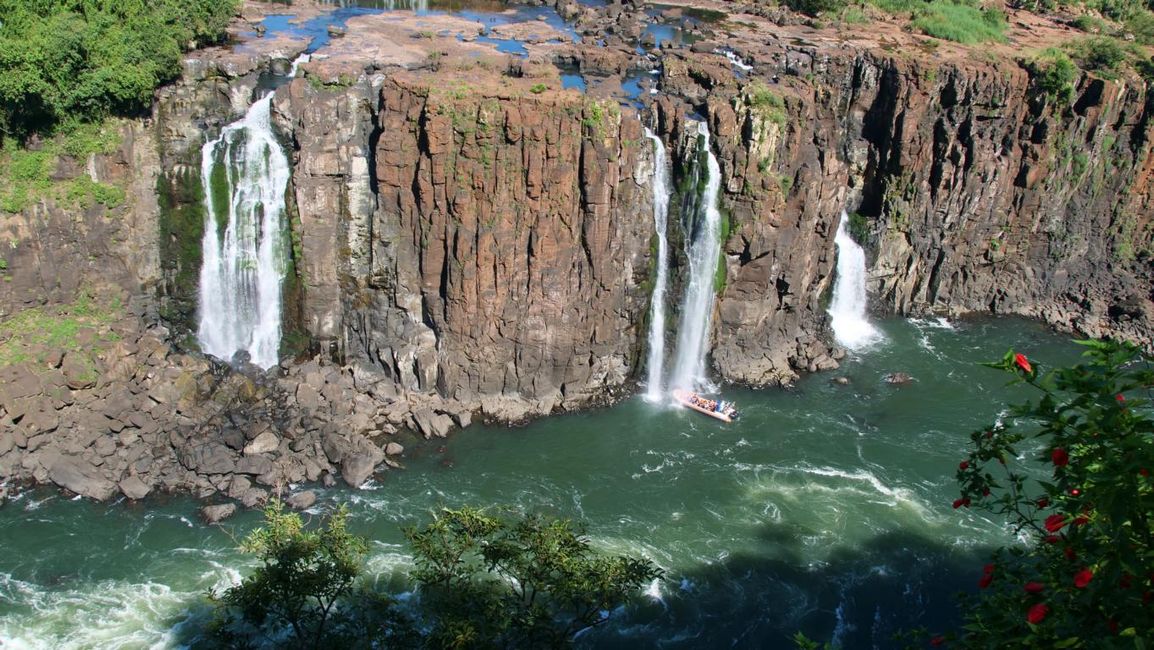
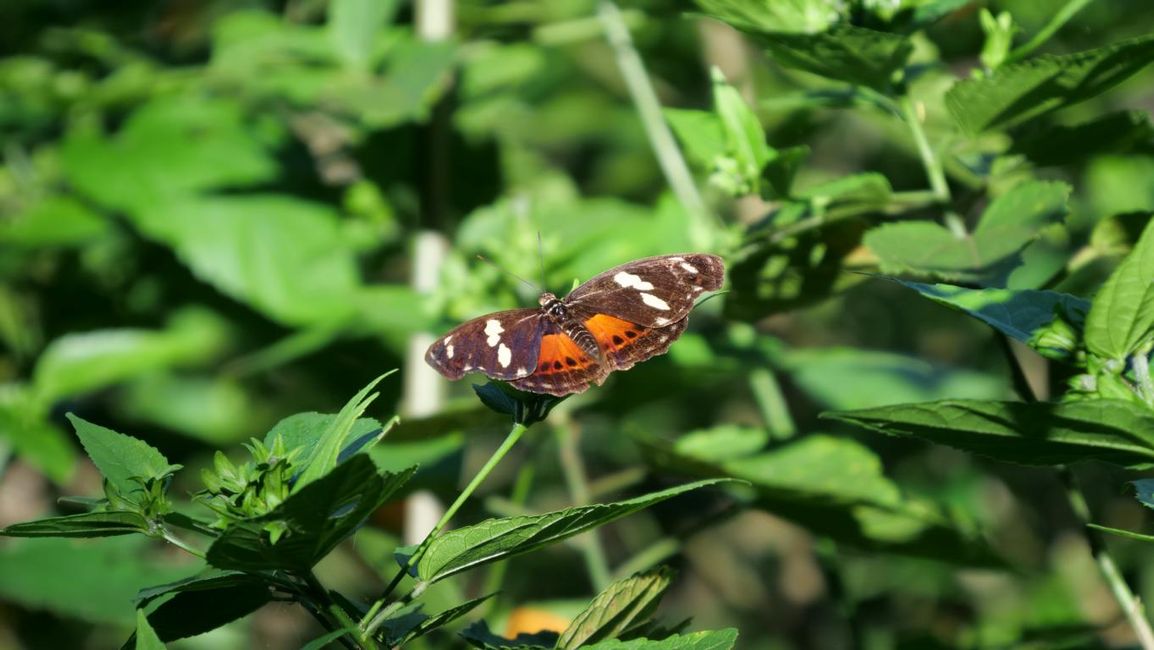
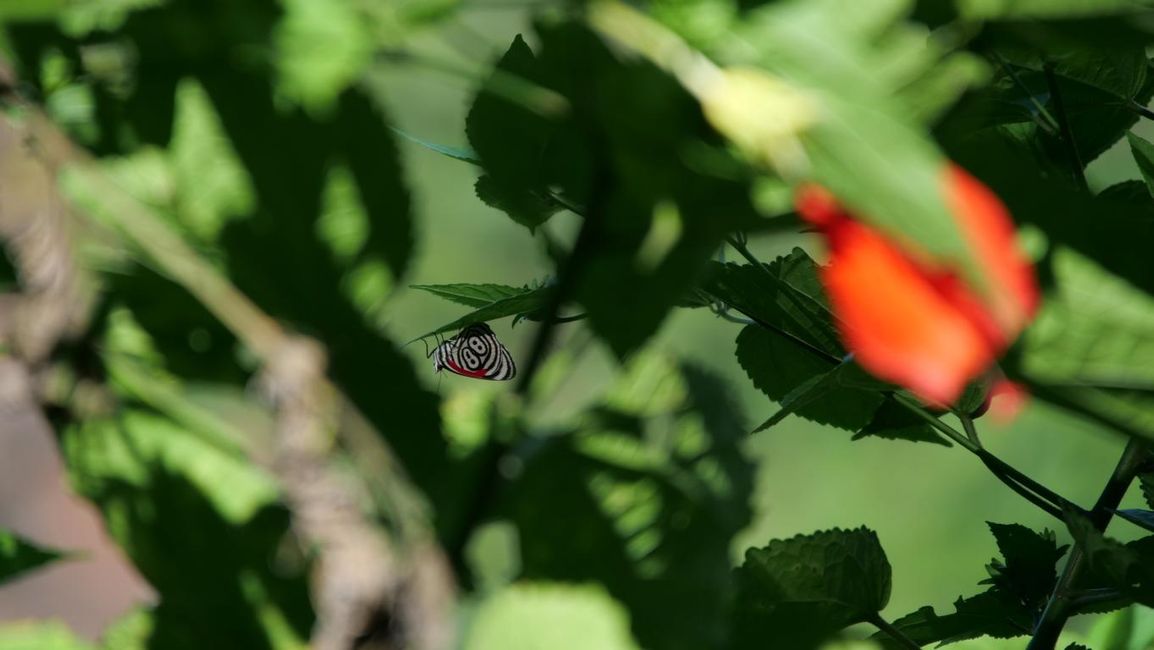
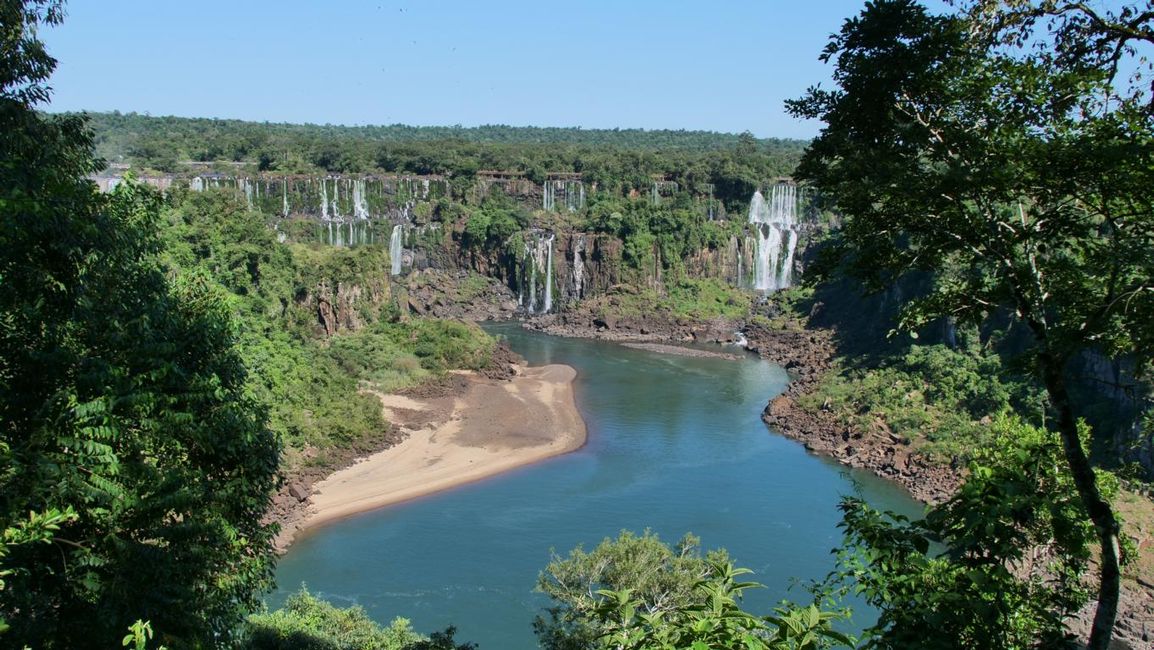
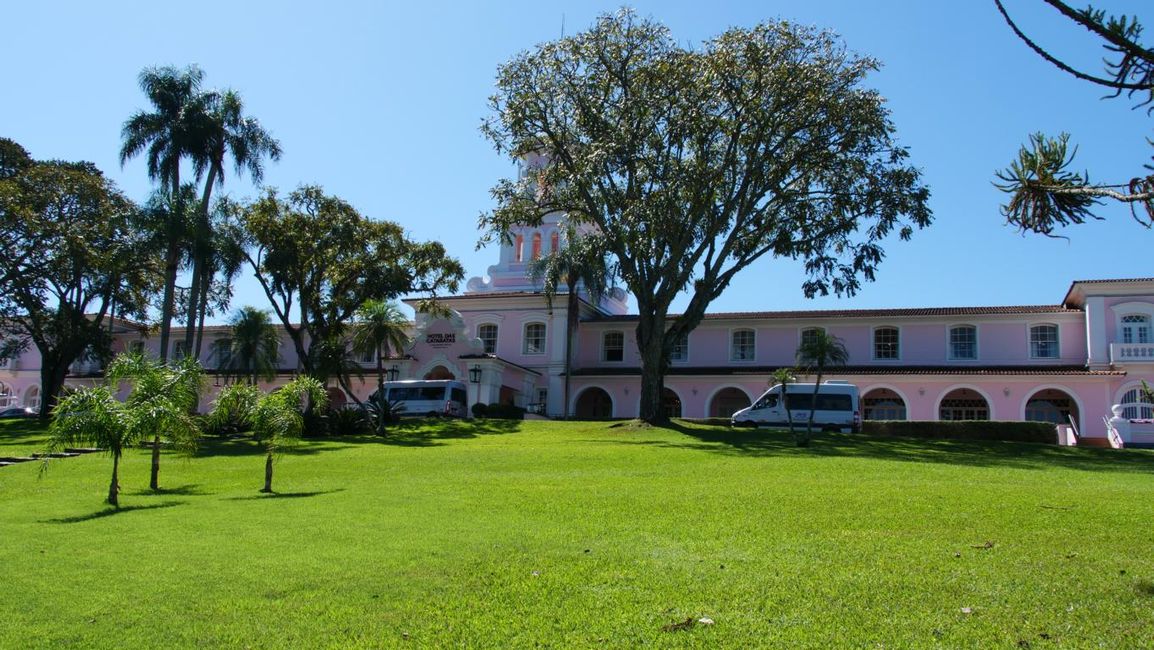
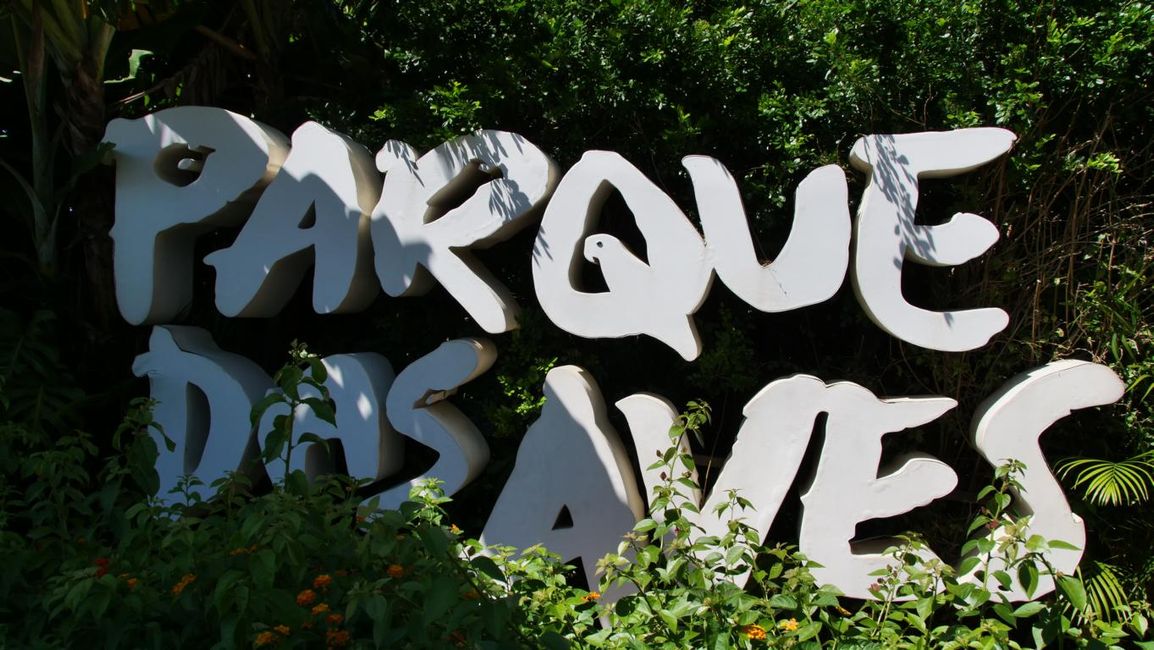
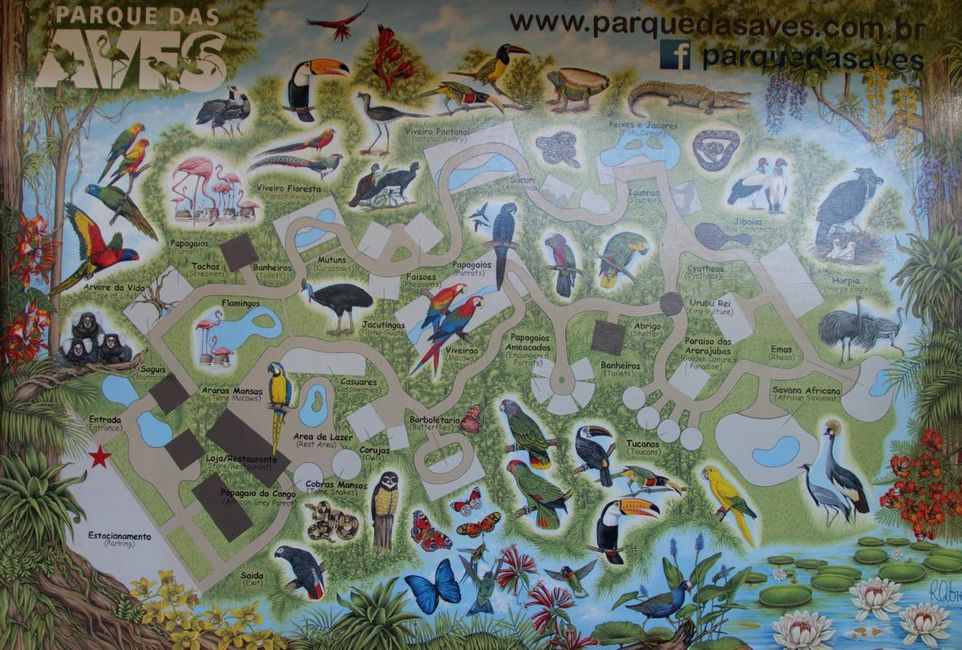
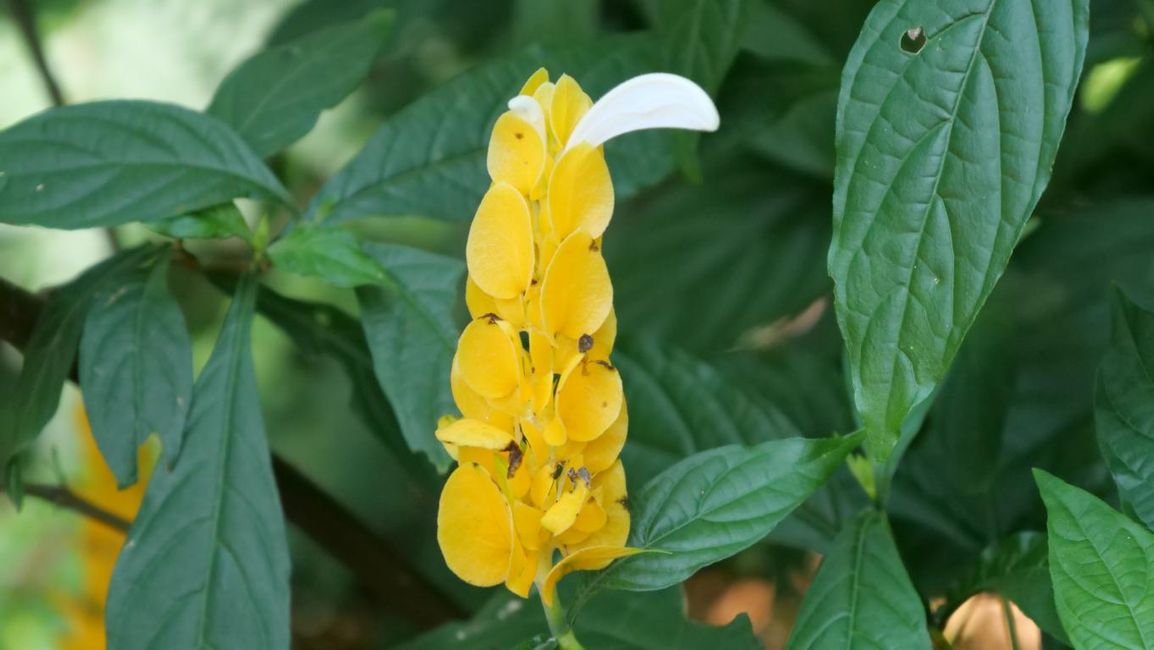
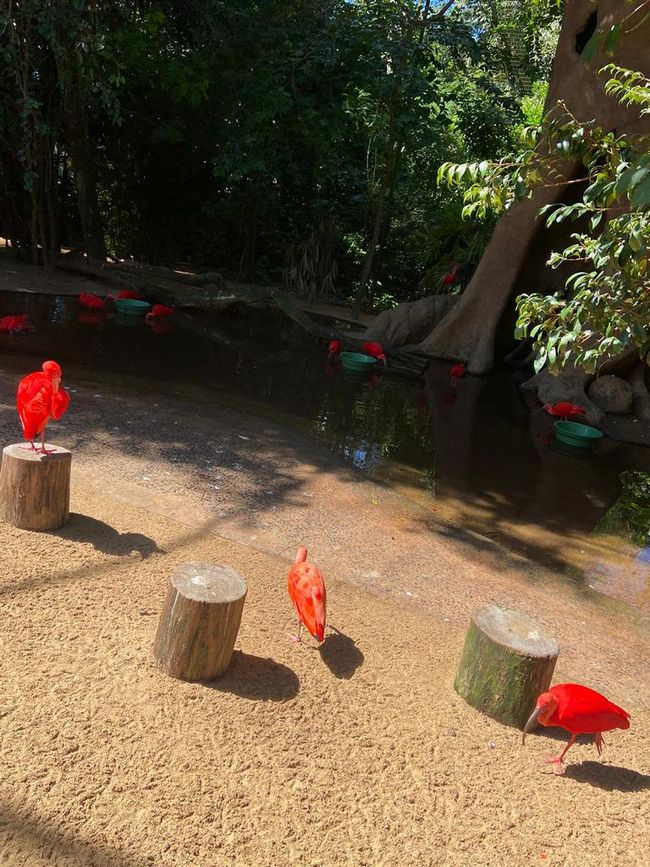
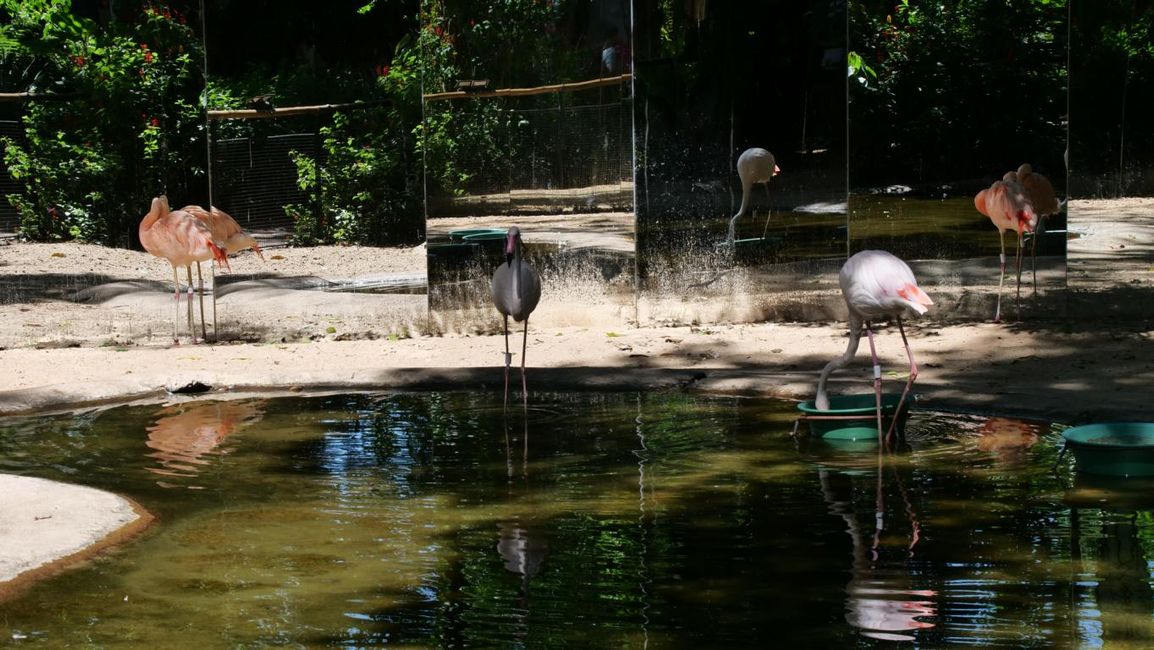

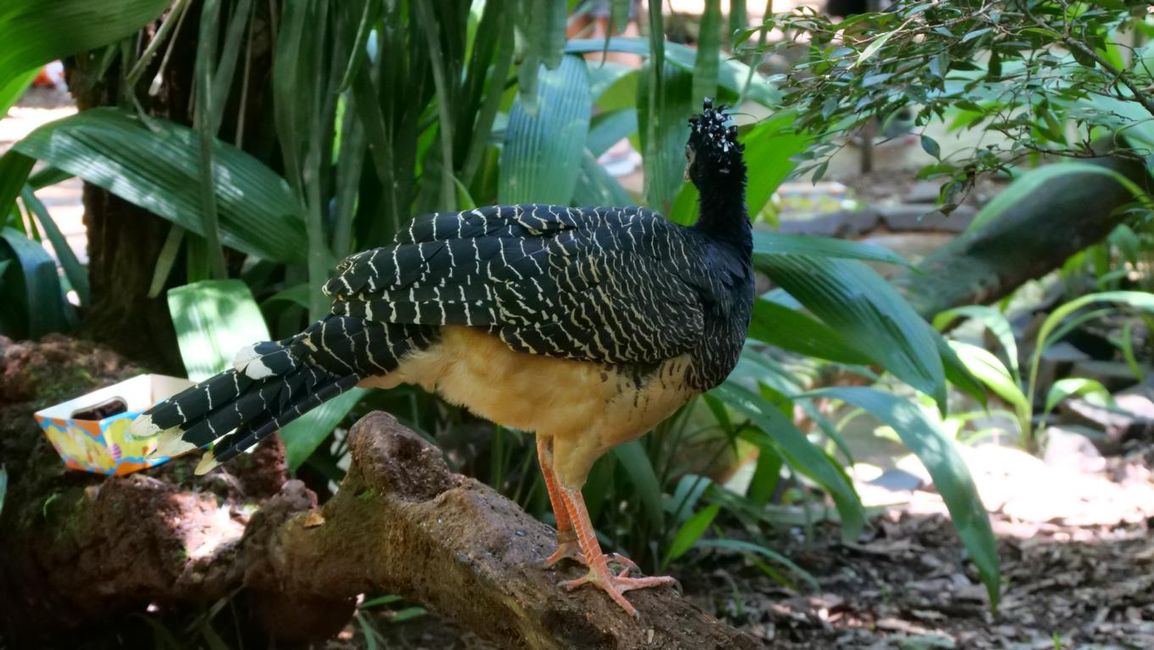
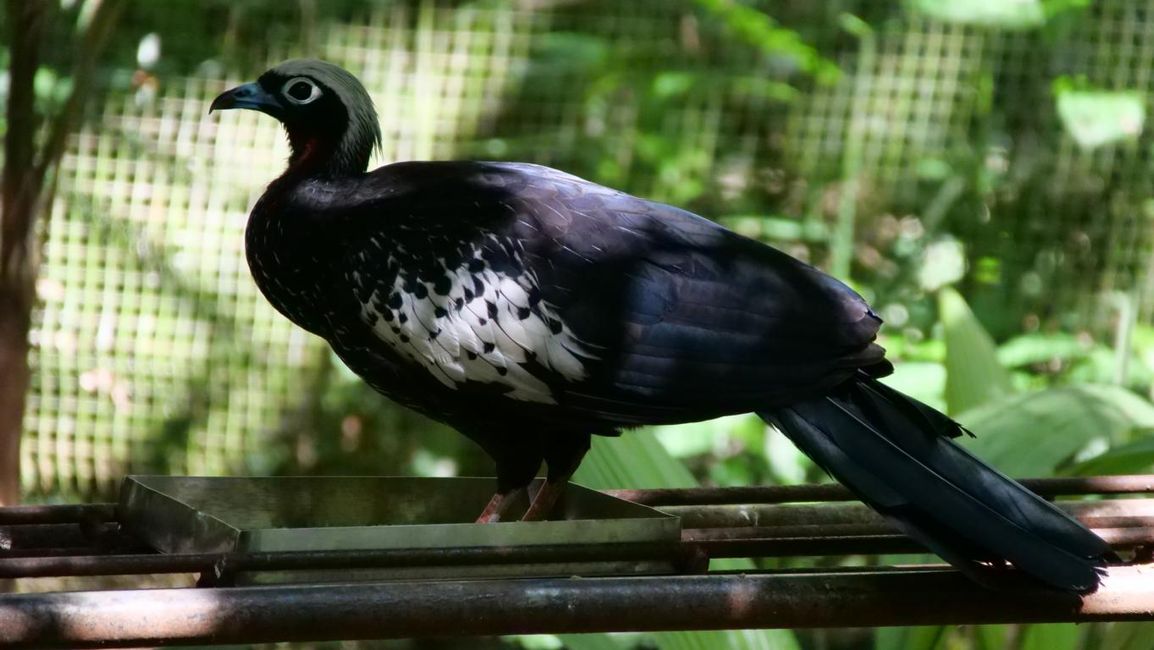
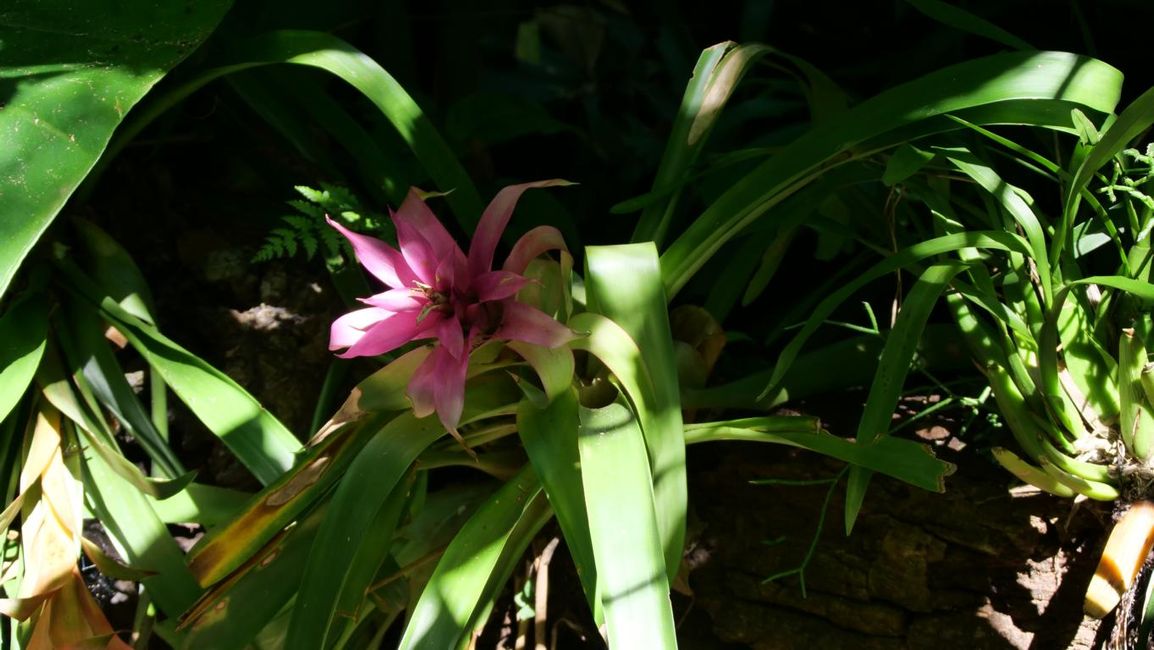

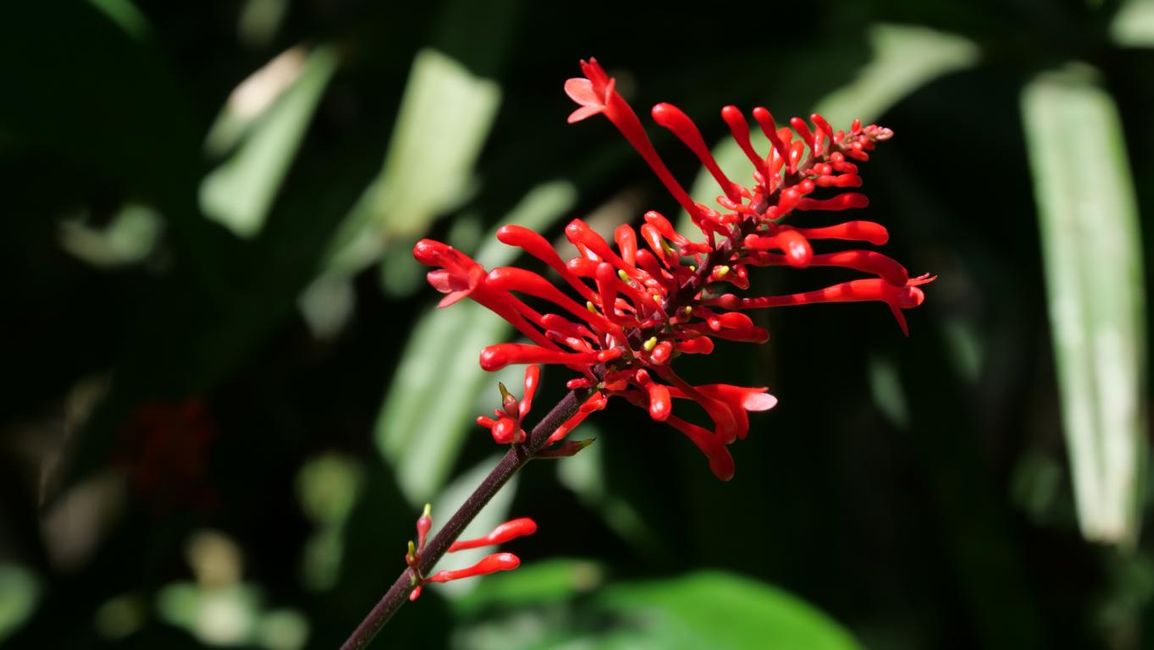
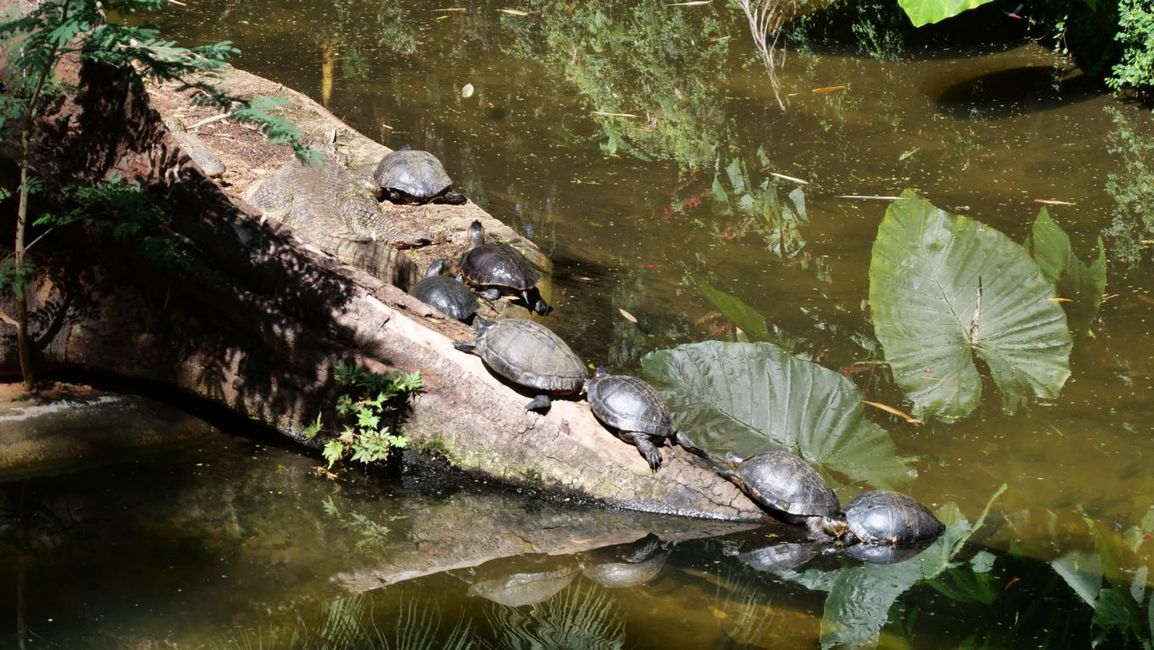
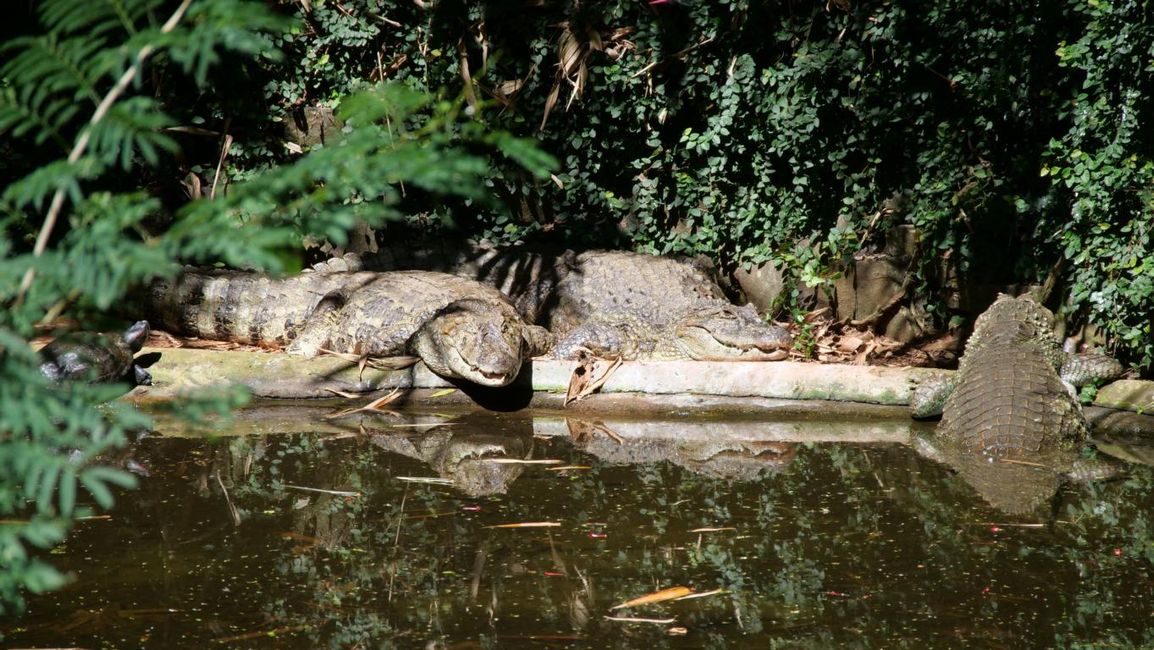
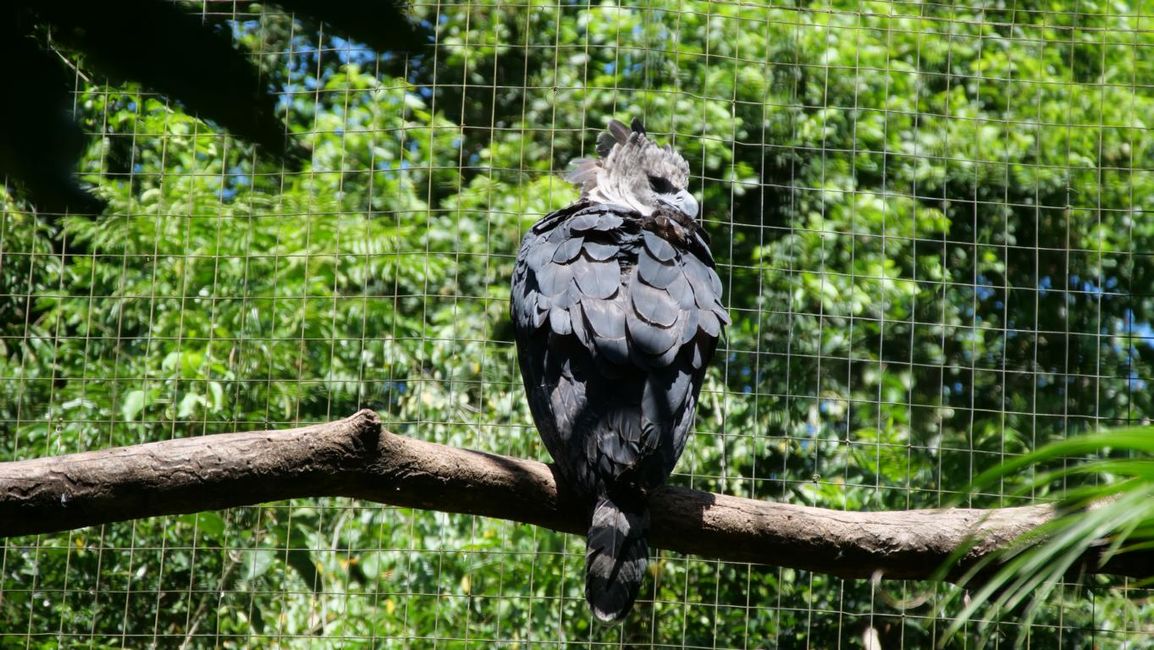
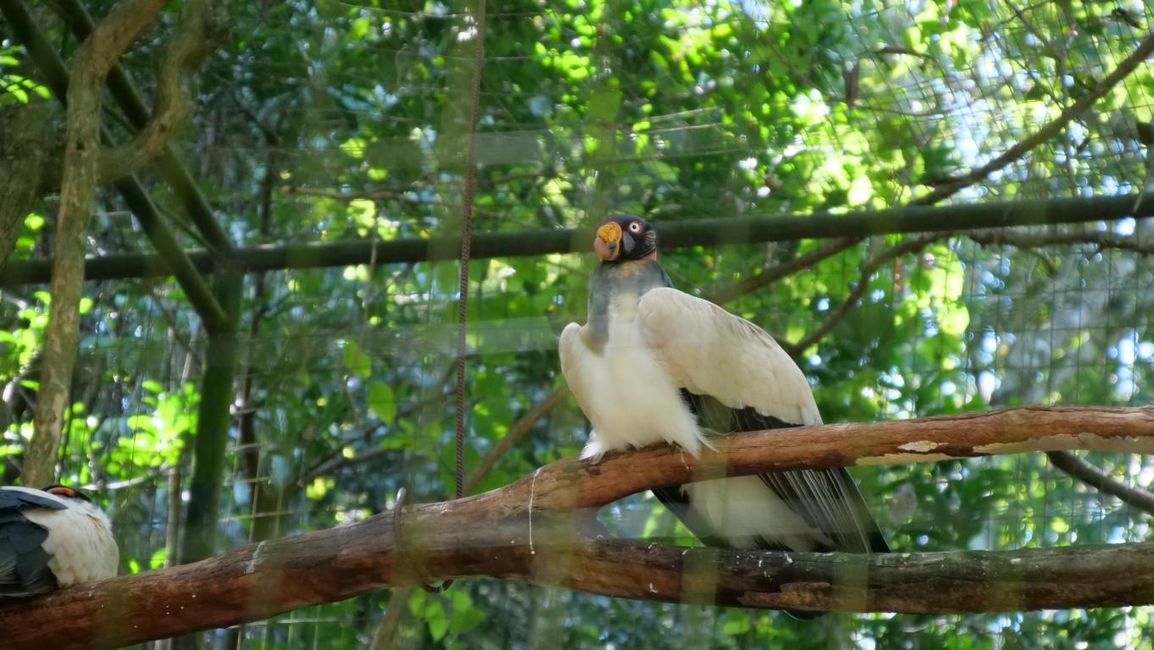
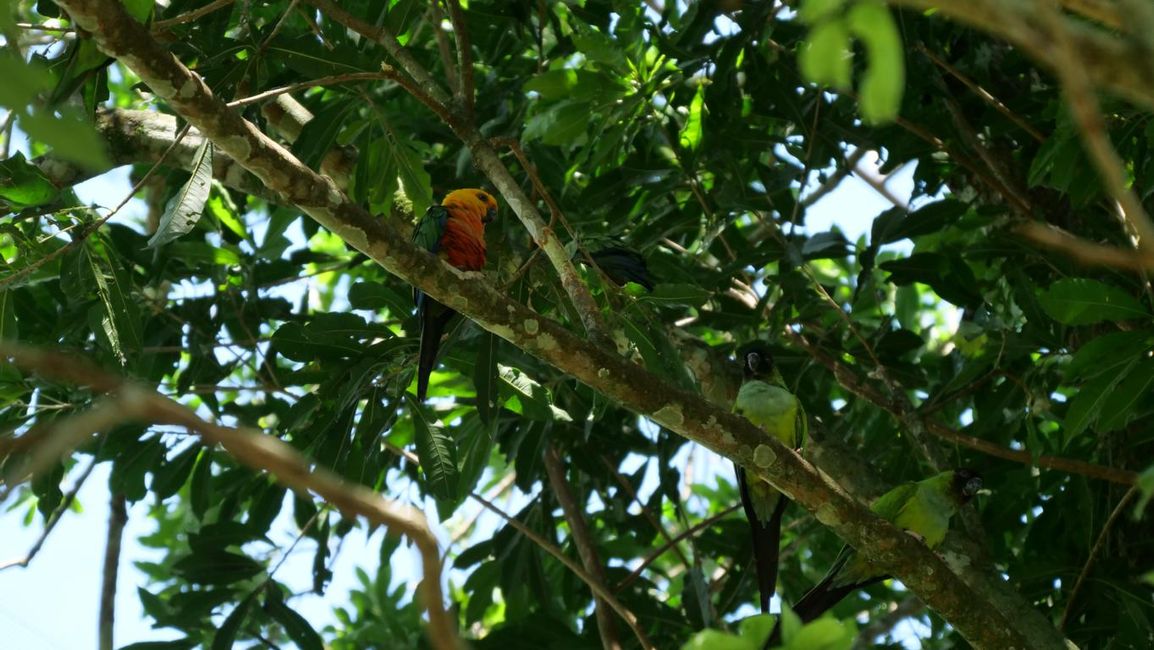
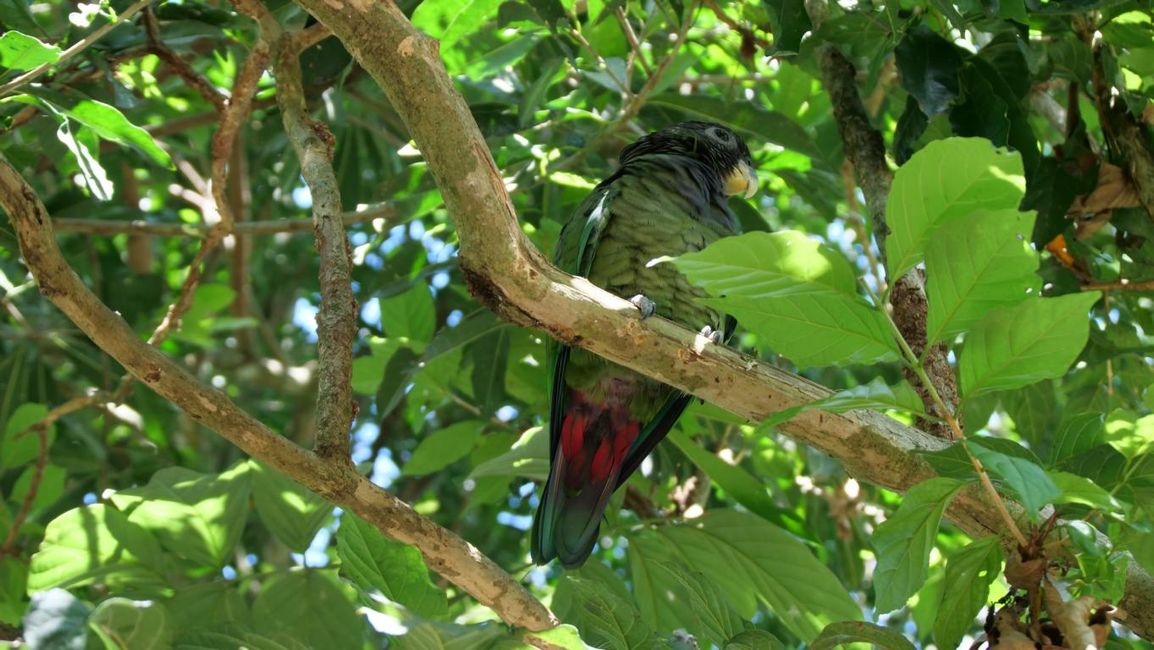
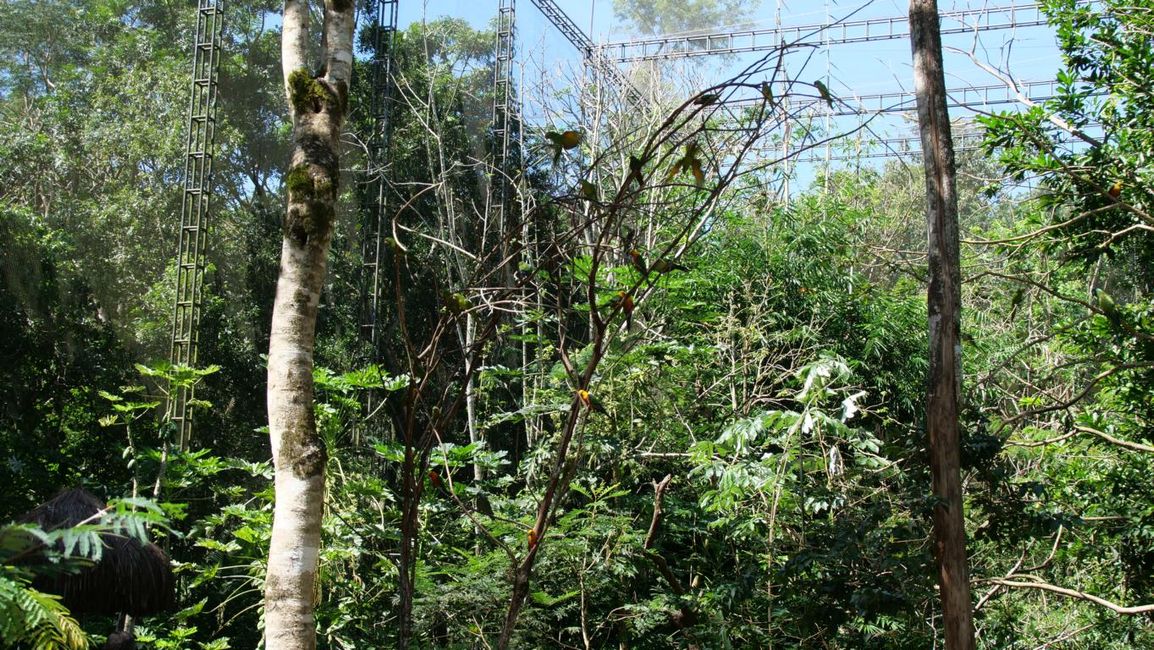
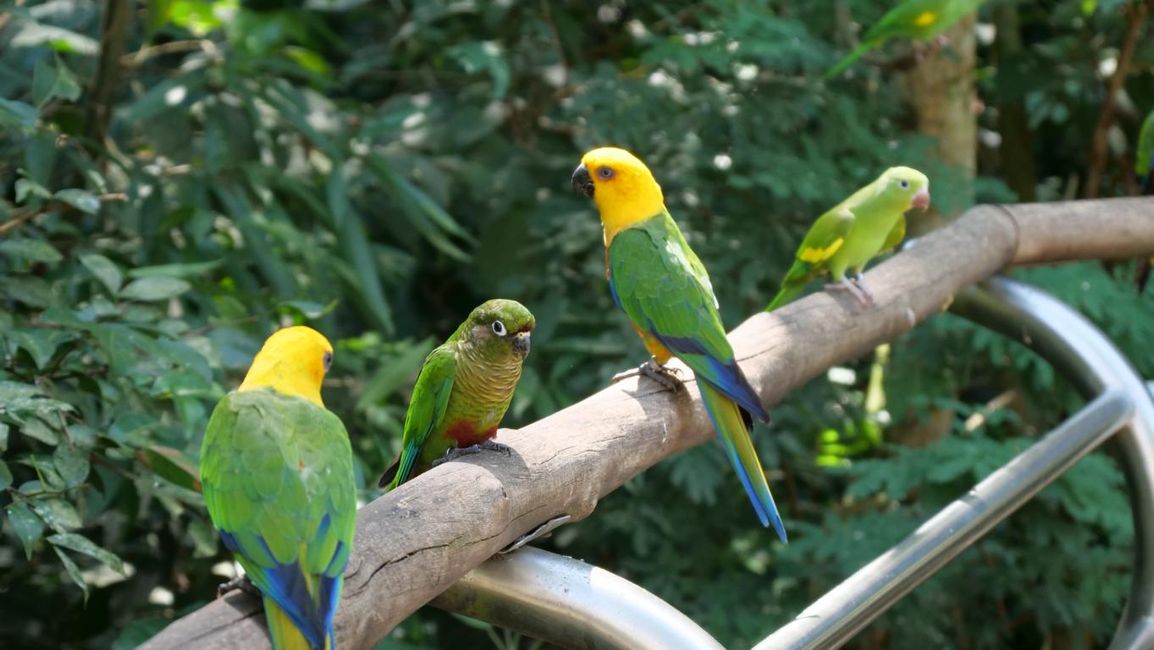
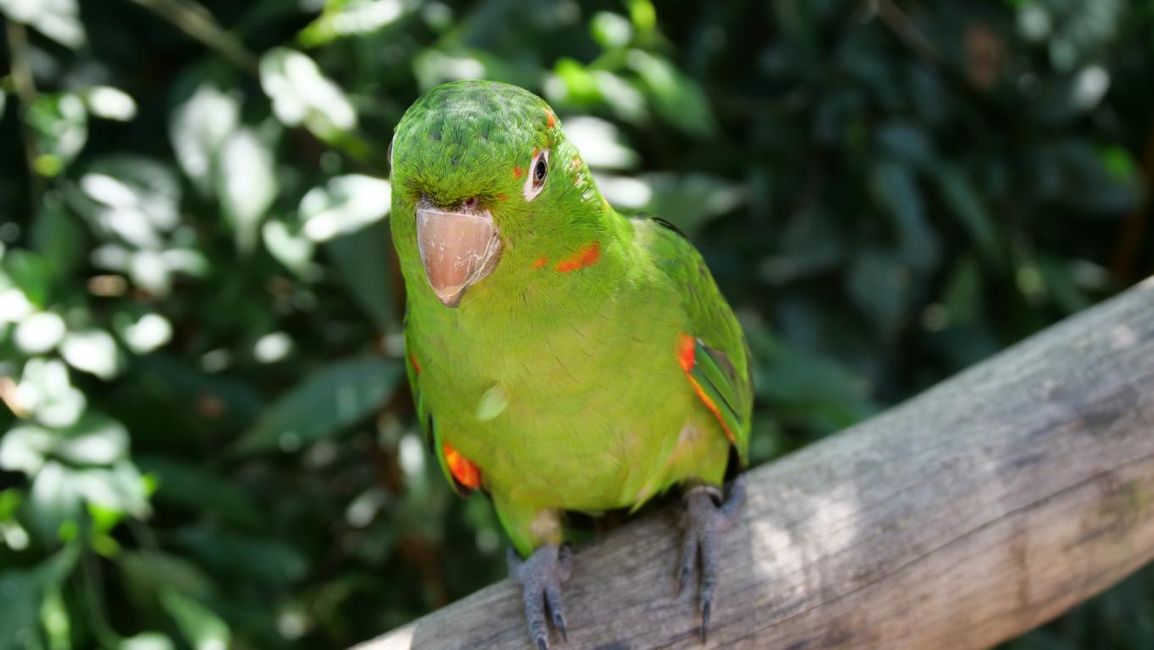

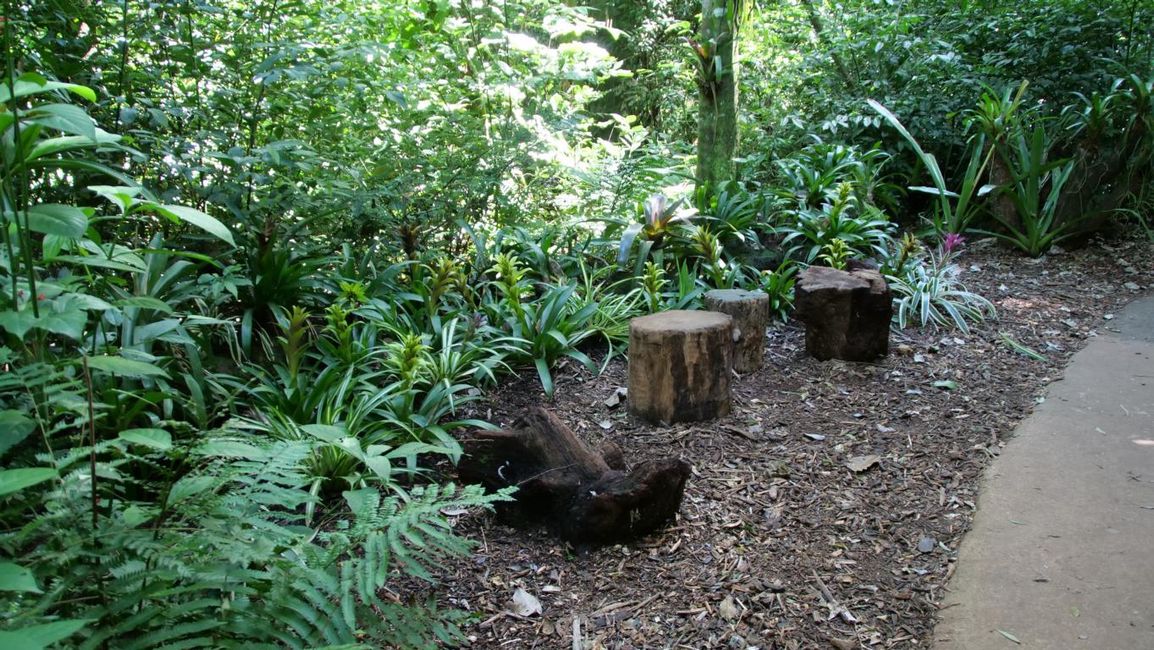
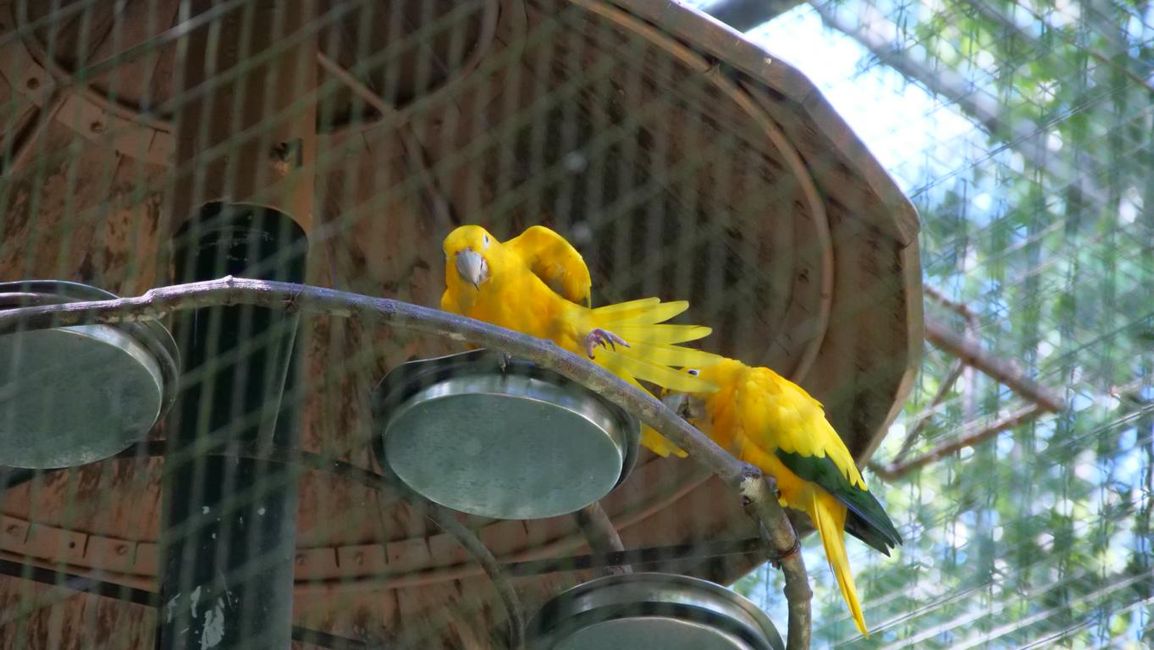
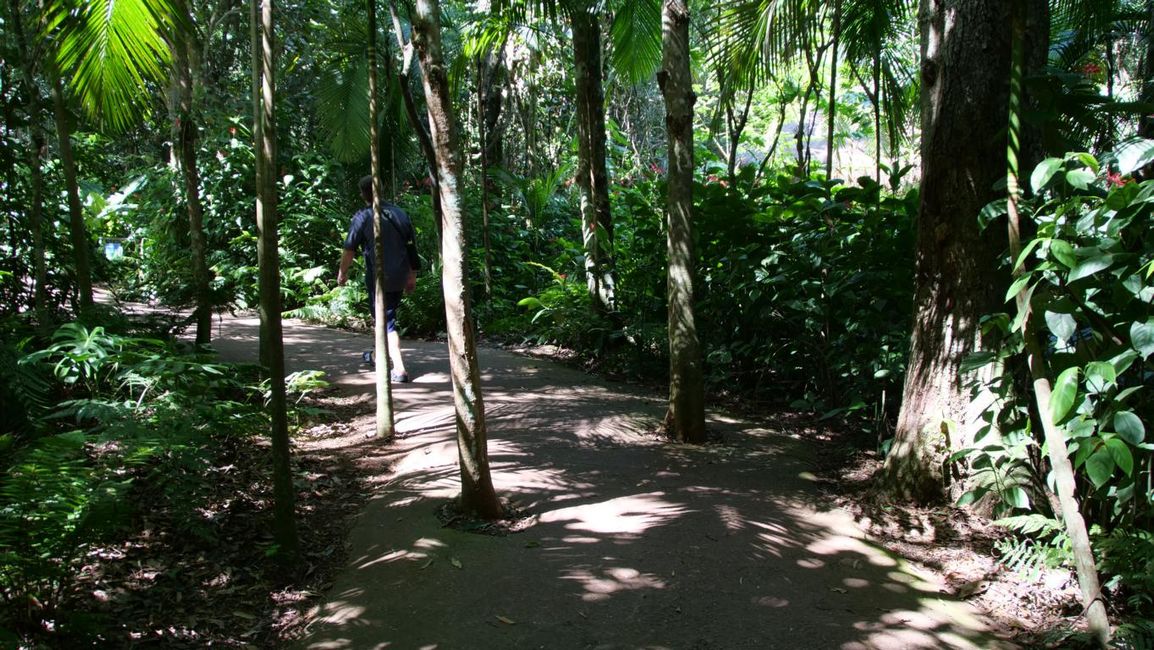
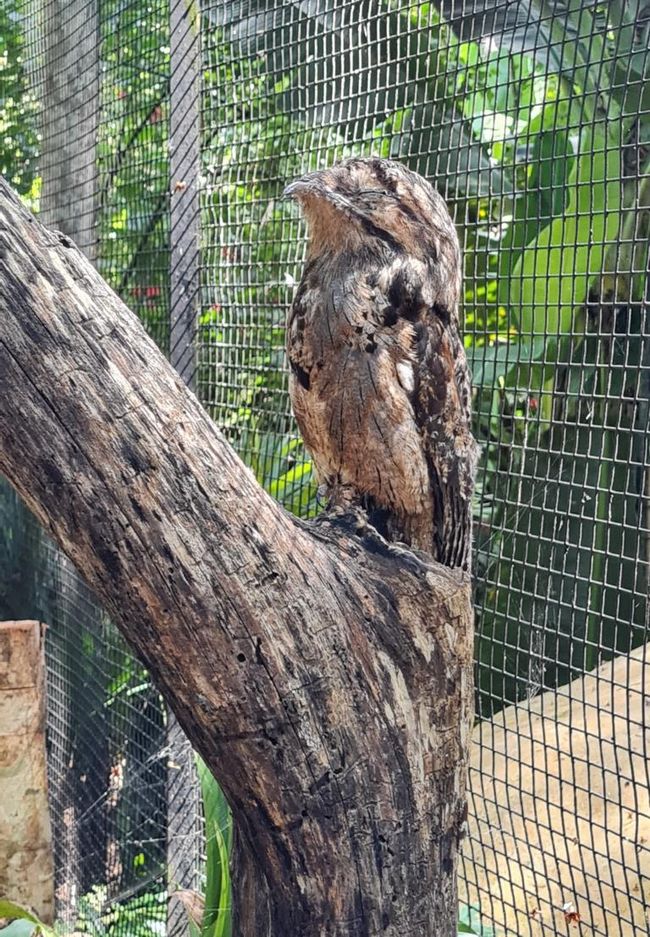
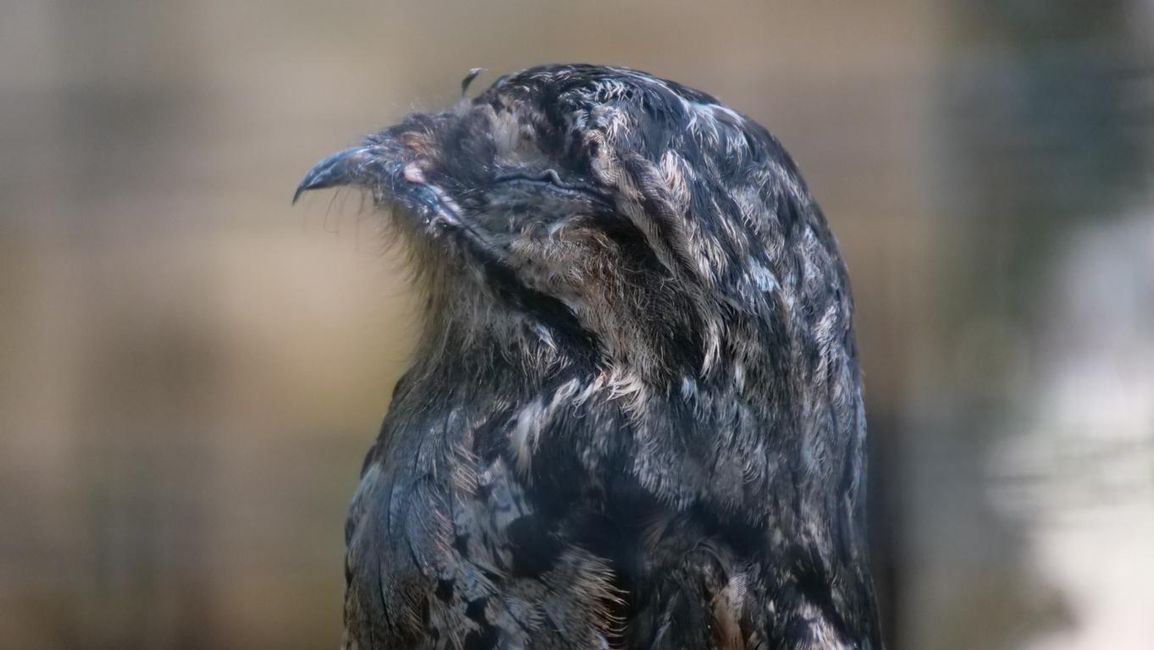
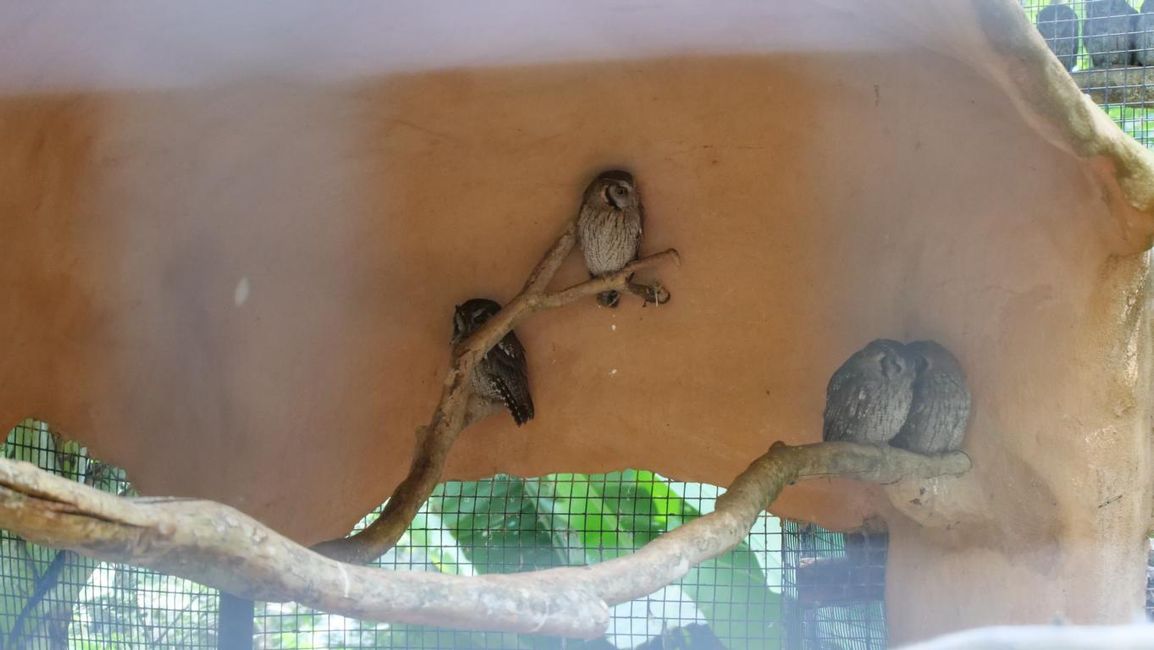
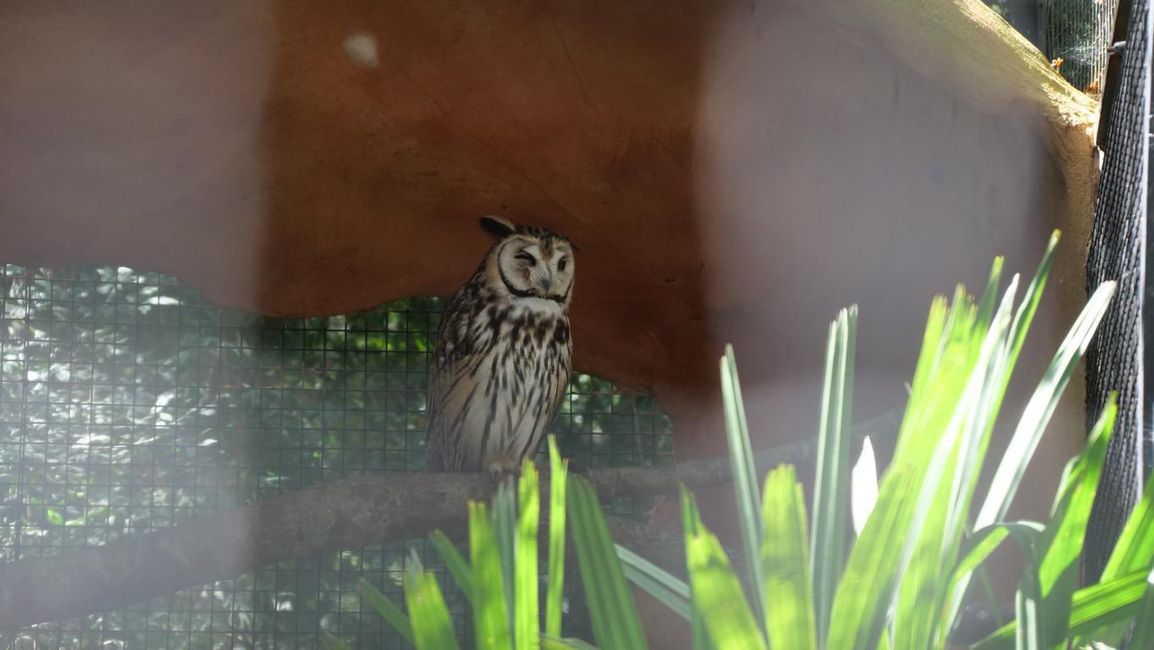
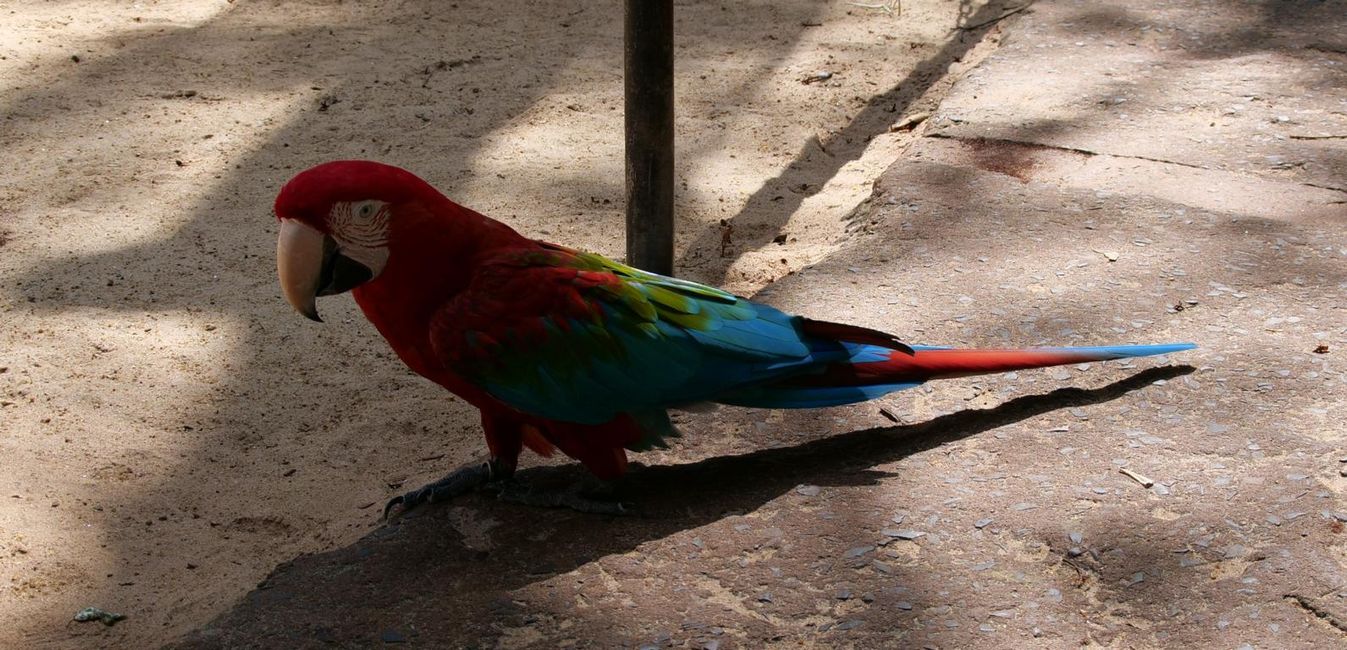
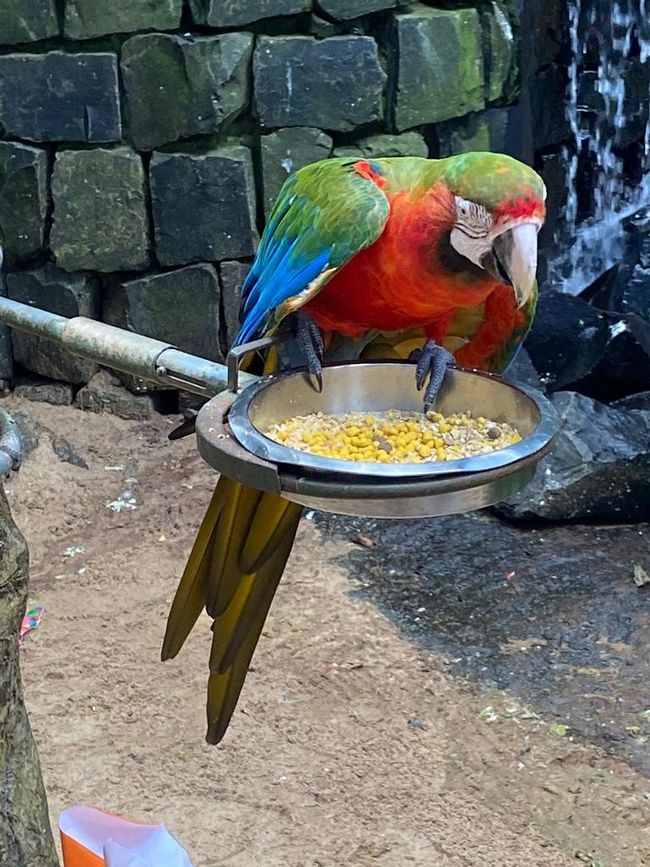
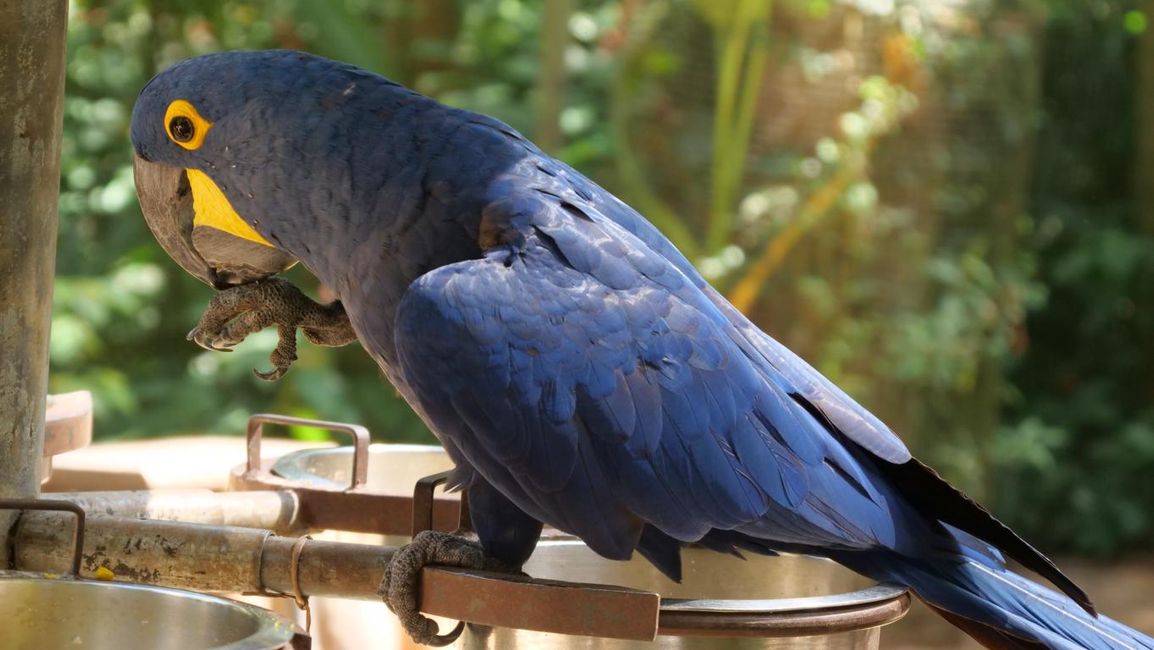
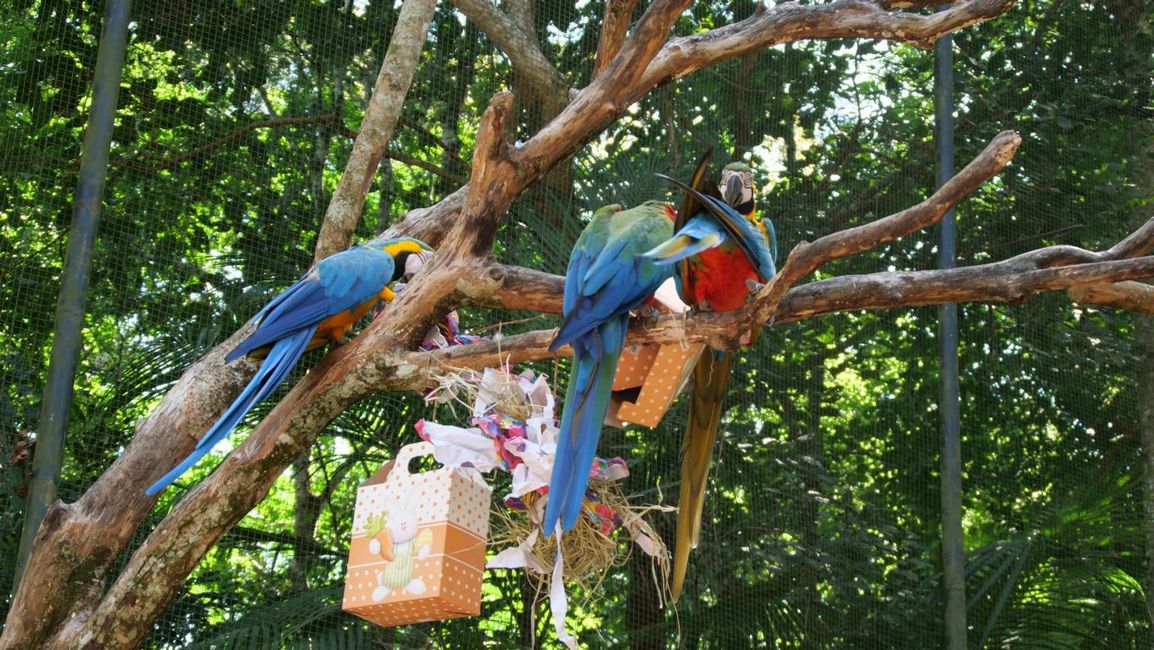
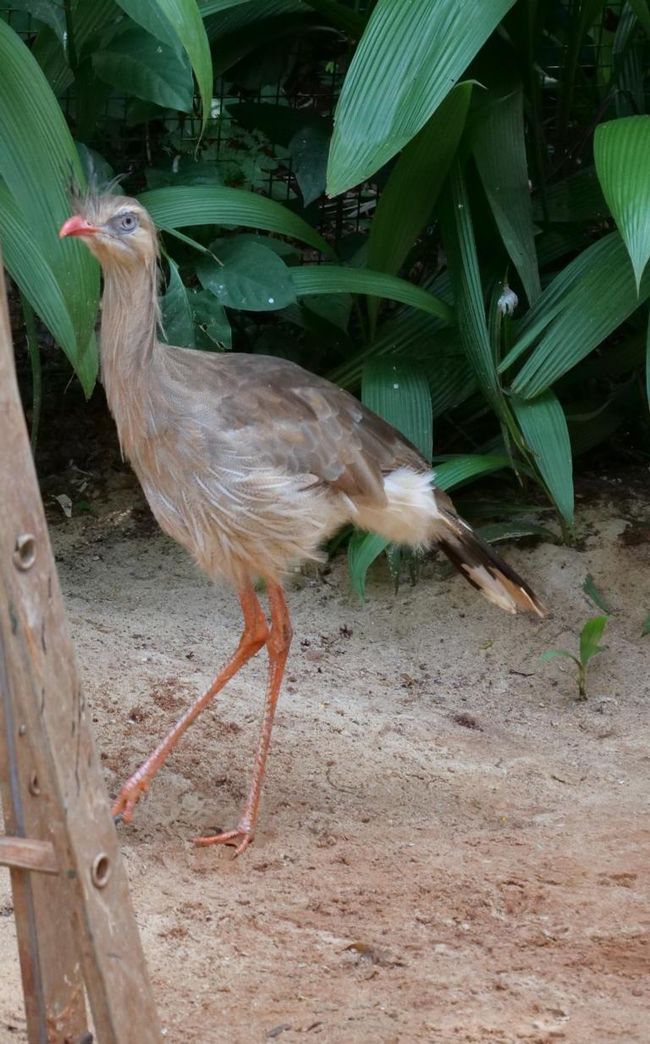
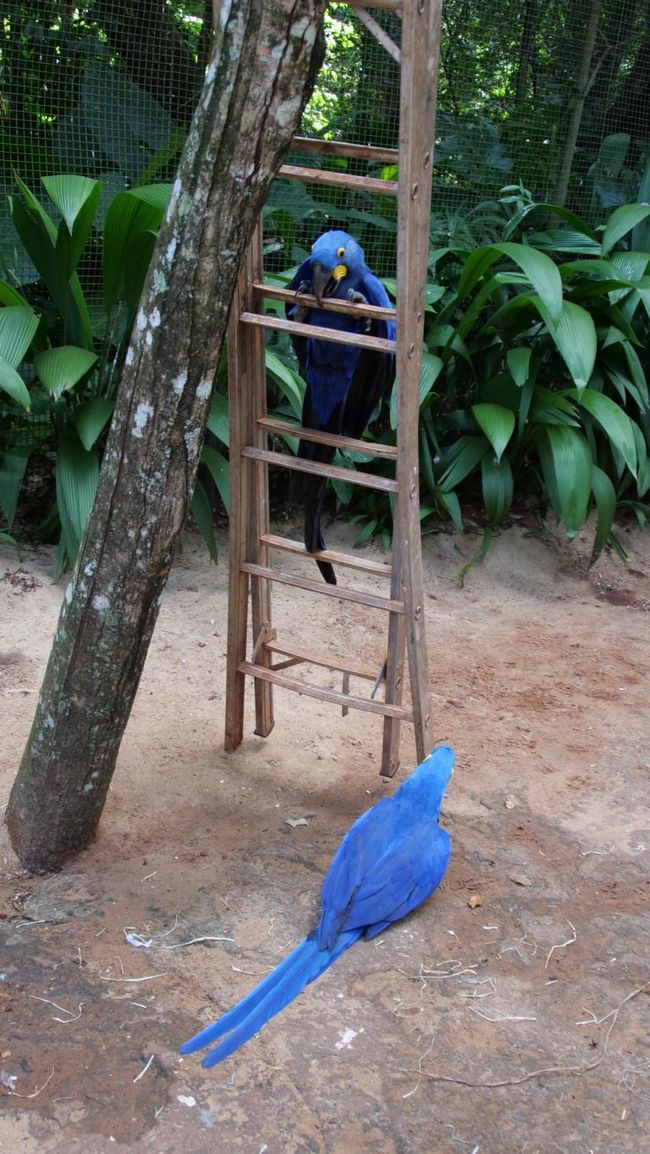
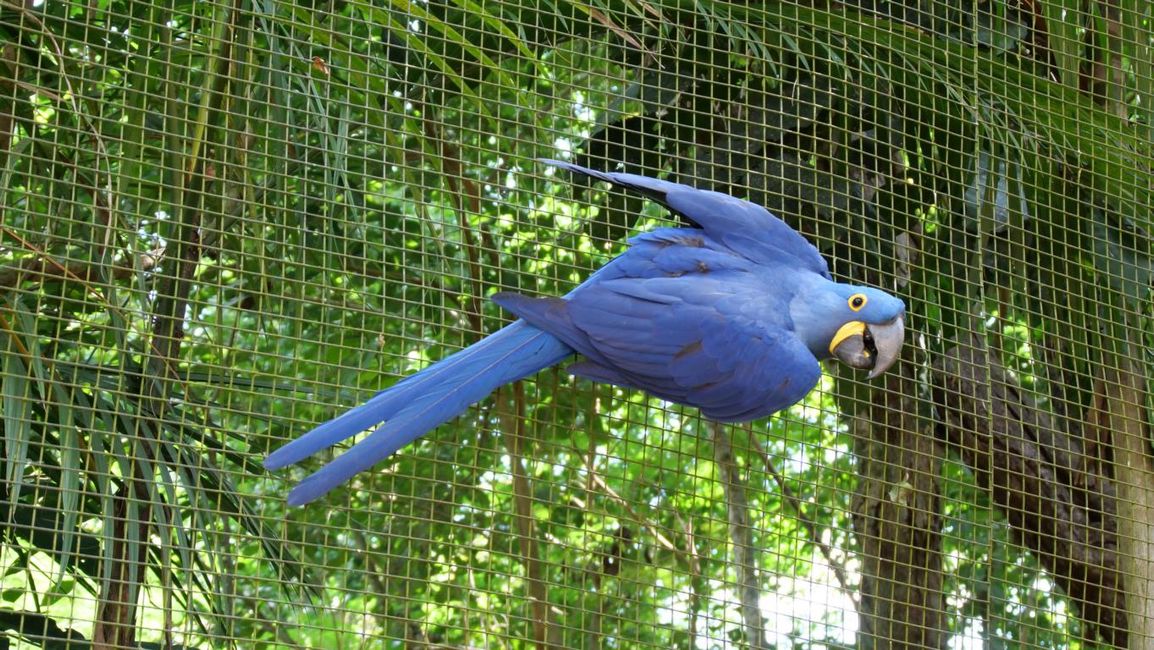
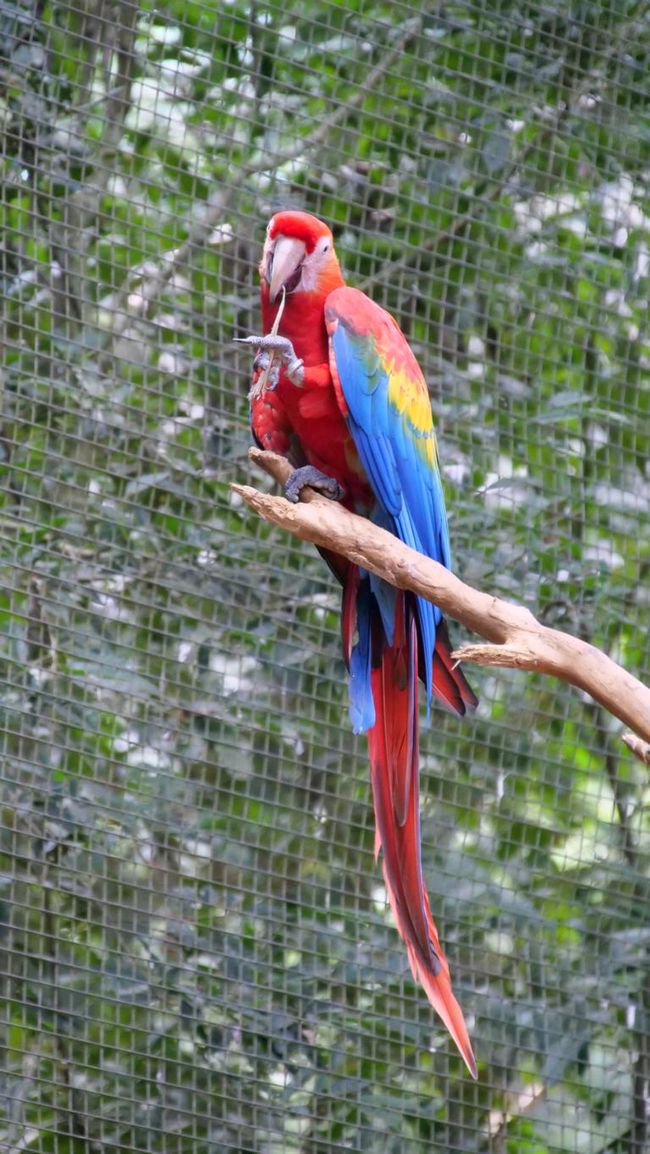
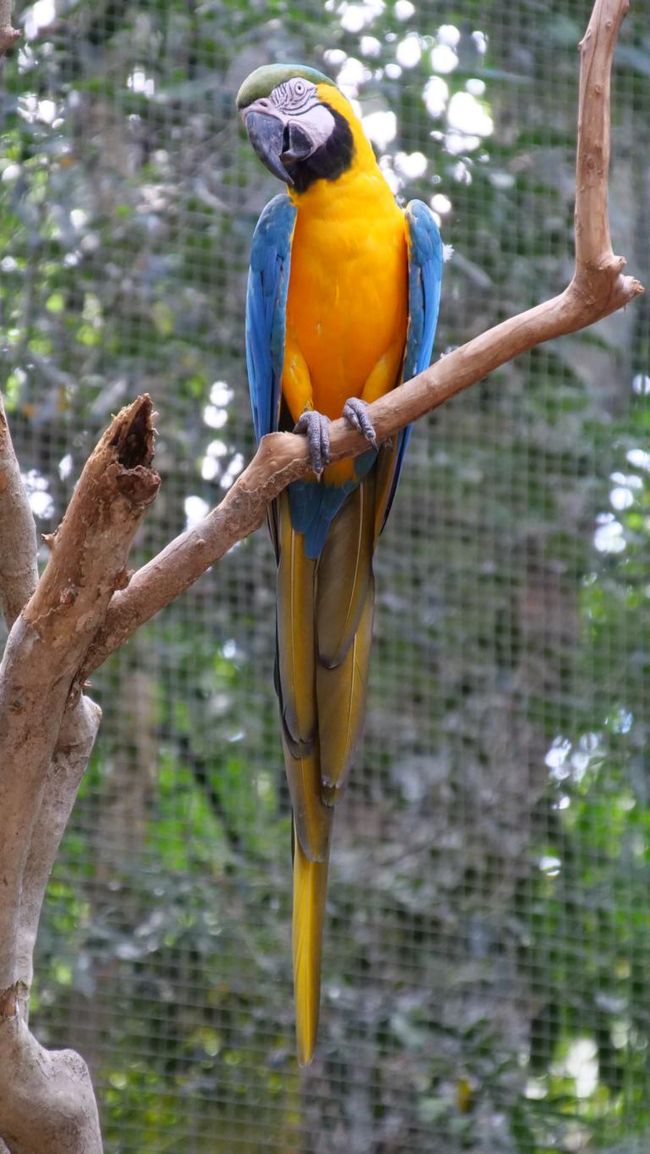
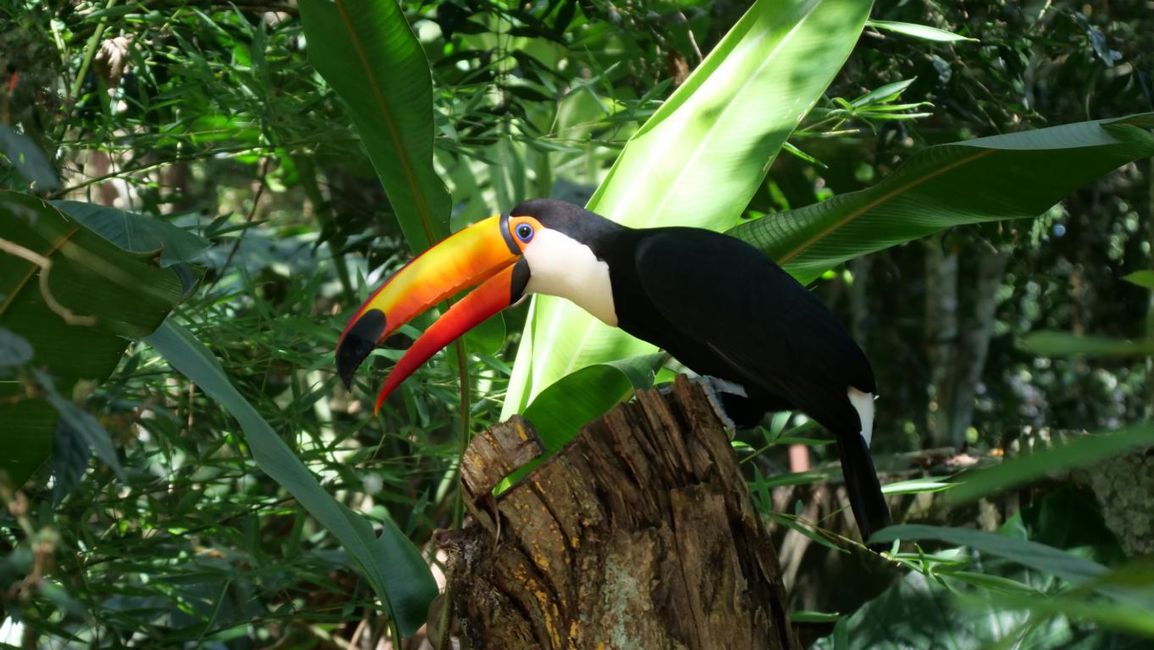
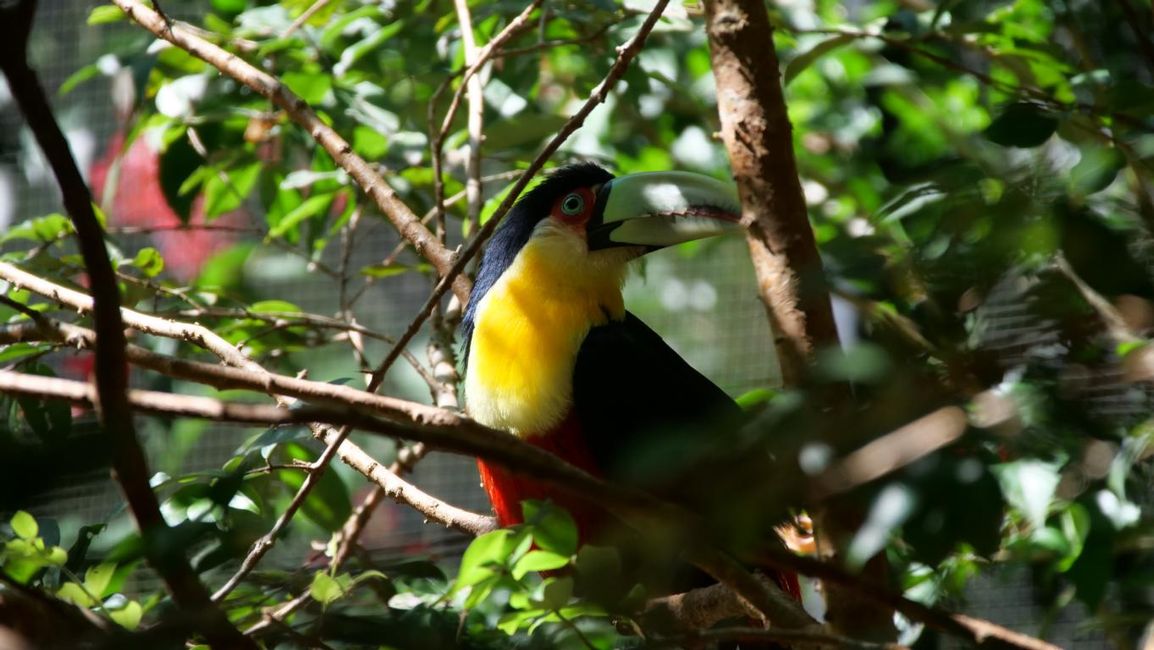

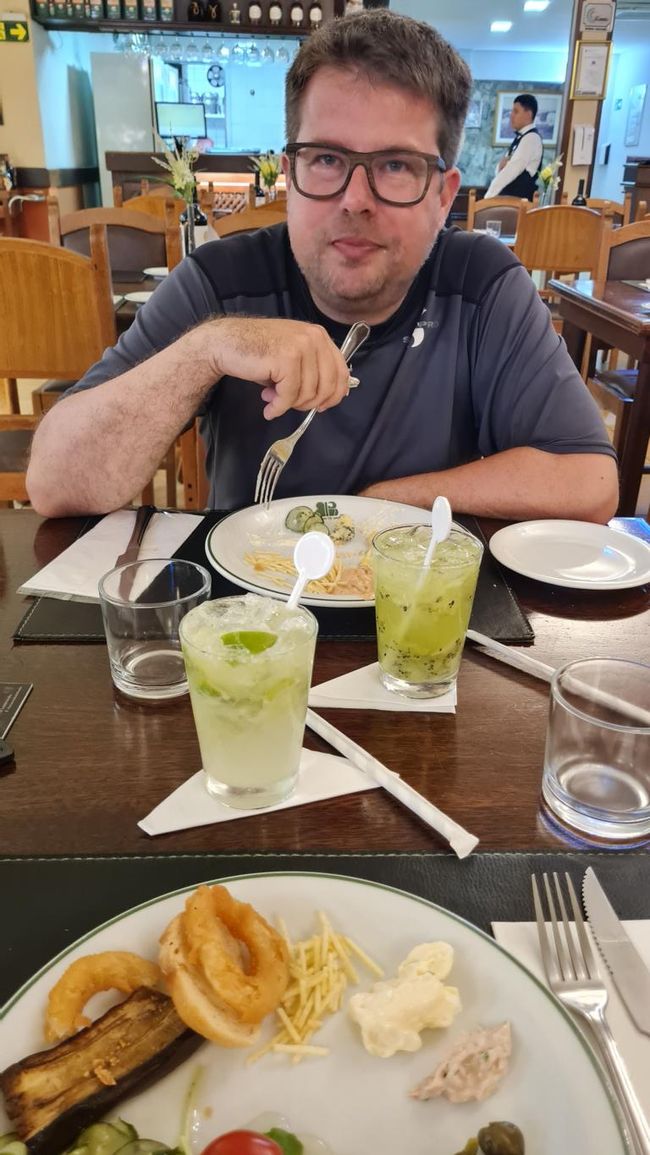

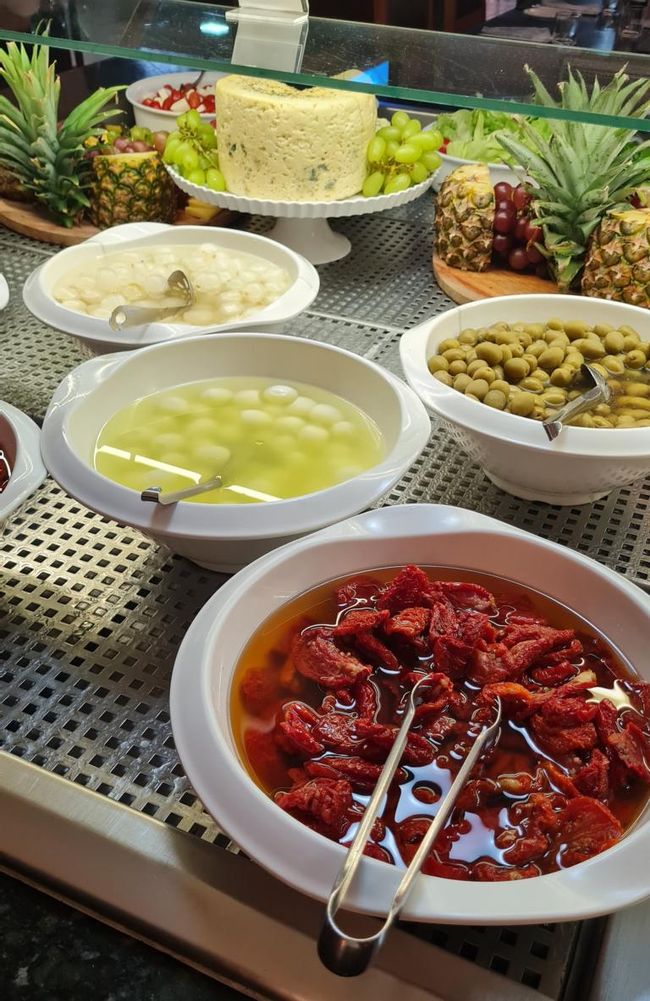

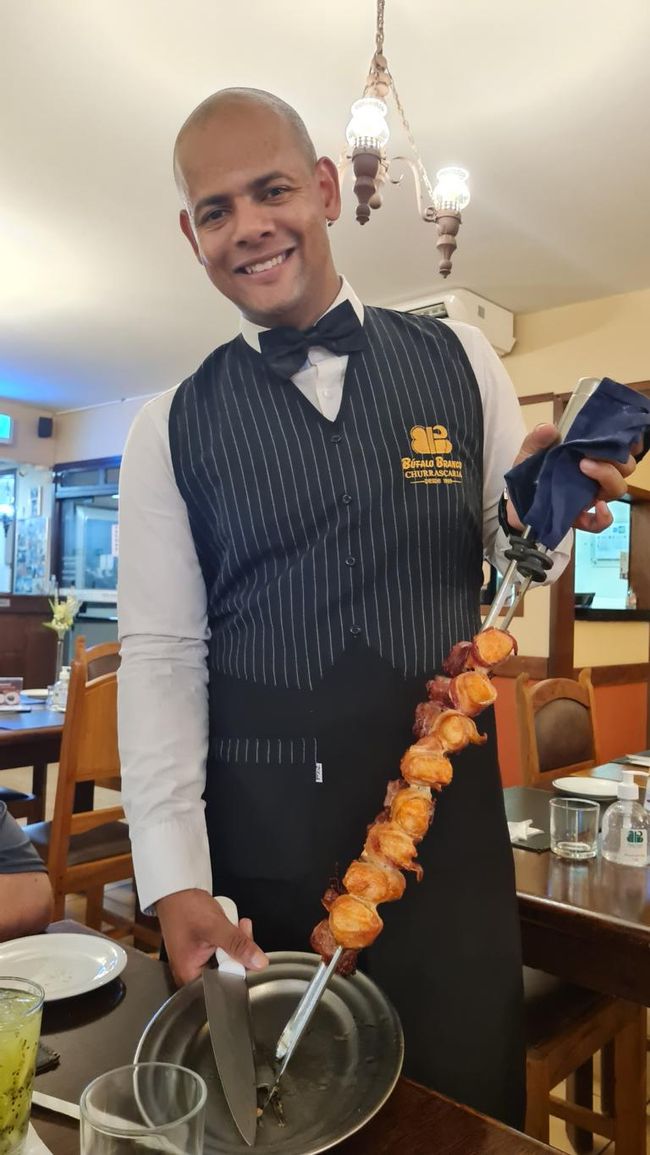
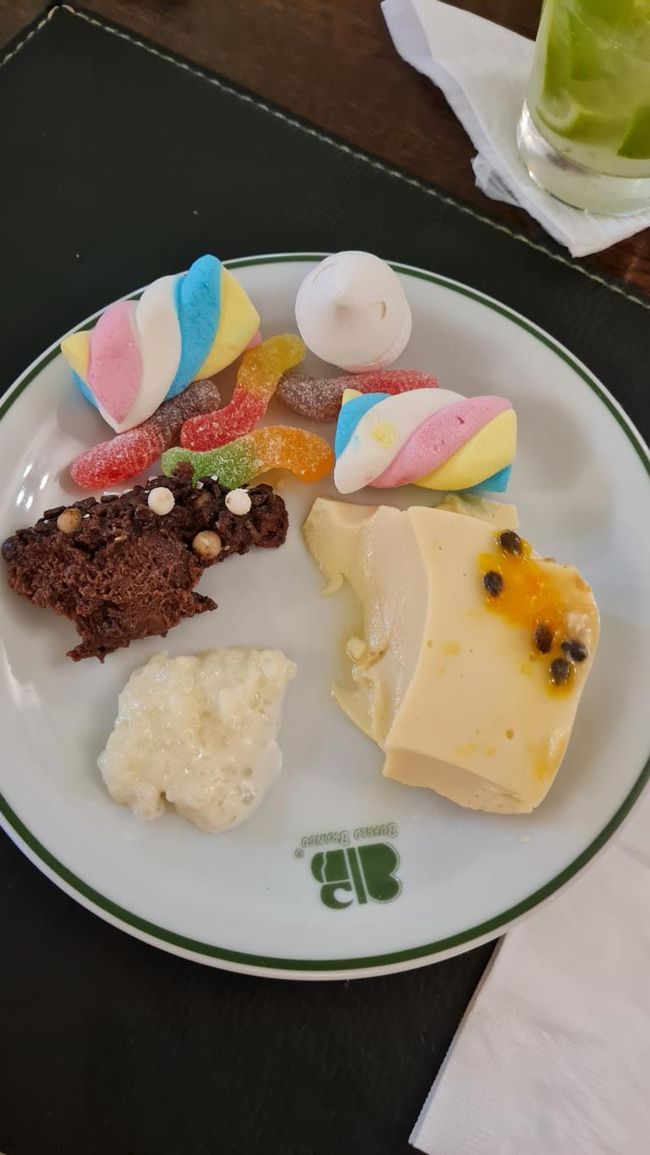

ንዜና ሳብስክራይብ ግበሩ
"Great Water" is what the Guarani people called the Iguazu Falls. This description may seem a bit small when we talk about the largest waterfalls on Earth. The 20 larger and 255 smaller waterfalls of the Iguazu River stretch over a width of 2,700 meters, have a height of up to 82 meters, and their water flow is between 1,500 and 7,000 cubic meters per second. They are separated by several islands and the national border between Brazil and Argentina runs lengthwise through the falls and the Iguazu River. Both countries have a national park that is on the UNESCO World Heritage list and protects the last remnants of the Atlantic Rainforest. Since 2011, the Iguazu Falls have been classified as one of the new seven natural wonders.
Early in the morning, we got up, had breakfast, and were at the entrance of the national park when it opened. We took the bus that drives visitors through the national park to the last station. From there, we continued on foot. We could see the first waterfalls, and then there were more and more. We arrived at the platform that is at the bottom of the Devil's Throat, the main waterfall. We had a breathtaking view of the huge masses of water falling down here. We were almost alone and really enjoyed it. Later, we saw how people crowded onto the platform to take the most beautiful photo. We walked the same way back to the bus station, but this time we took our time. Most of the waterfalls are in Argentina, so the panoramic view from Brazil is much larger and we enjoyed it. On the way back, we also saw some rainforest inhabitants, including South American coatis. They are very cute, but quite cheeky and thieving. Around noon, we left the national park and went across the street to Parque das Aves. In English, that translates to Bird Park. The park opened in October 1994. With its over 1,300 birds of 140 different species, it calls itself the largest bird park in South America. It is beautifully situated in green surroundings, has large bird aviaries, a small butterfly house, and some reptiles and mammals also live here. We took our time to carefully observe the many different birds. Then we took the bus to the city of Foz do Iguacu. We walked through many streets, right, left, long straight. We didn't find a proper city center, no interesting streets, no souvenir shops, nothing that could suggest that one of the world's largest attractions is located in the immediate vicinity and that tourists would be visiting. Finally, we had a delicious espresso and homemade cake in a good café. Now we had been in the famous land of meat for a while, so it was time to try some. So, we had dinner in a typical Churrascaria. We helped ourselves at a huge buffet and every few minutes, men with large skewers full of freshly grilled delicacies came by and filled our plates.
ንዜና ሳብስክራይብ ግበሩ
መልሲ (1)
Ute
Faszinierend, hätte ich auch gerne gesehen 😢😢 war bestimmt wunderschön 👍🫶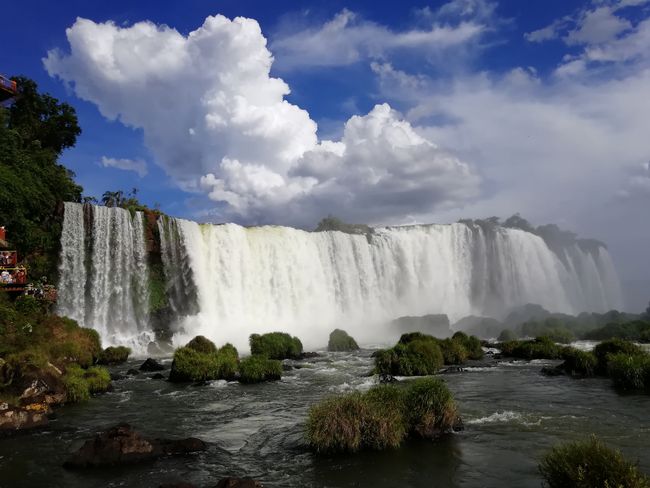
ጸብጻባት ጉዕዞ ብራዚል
